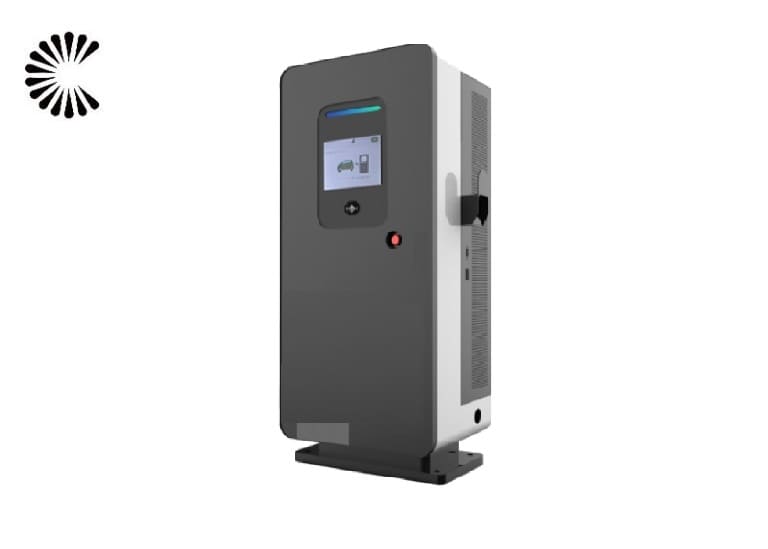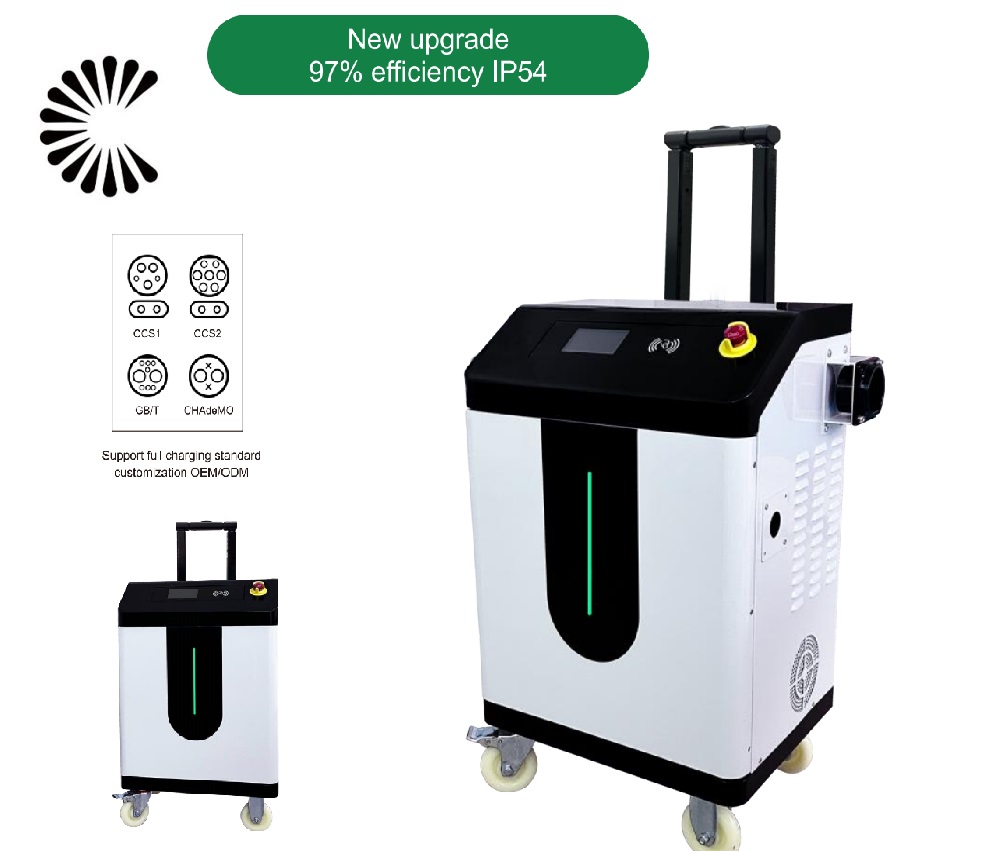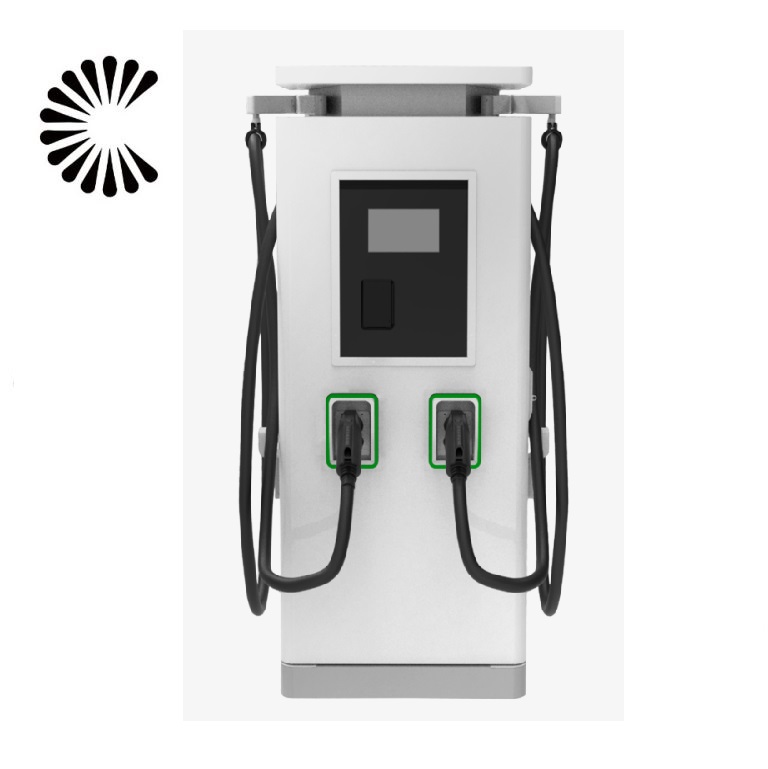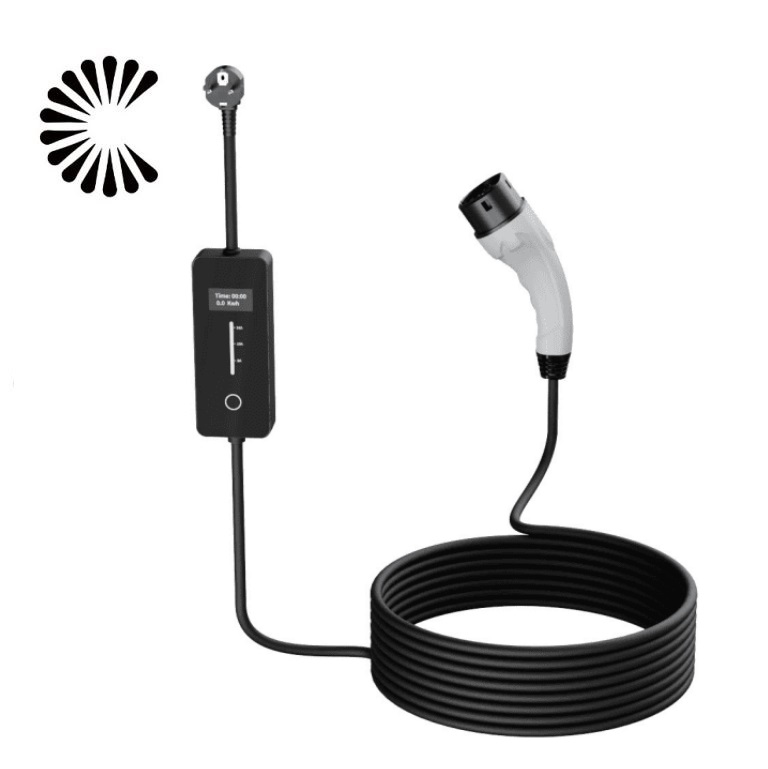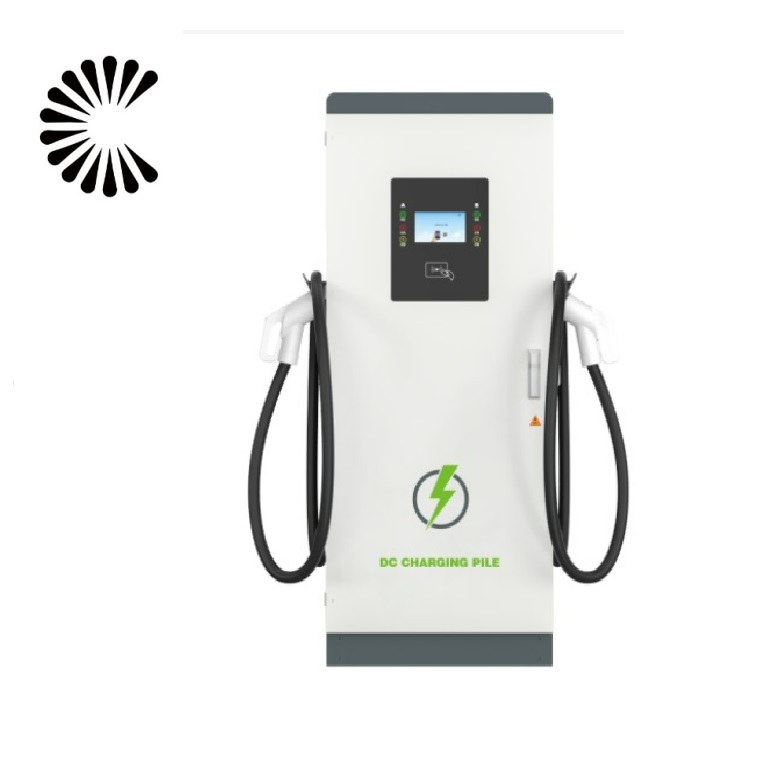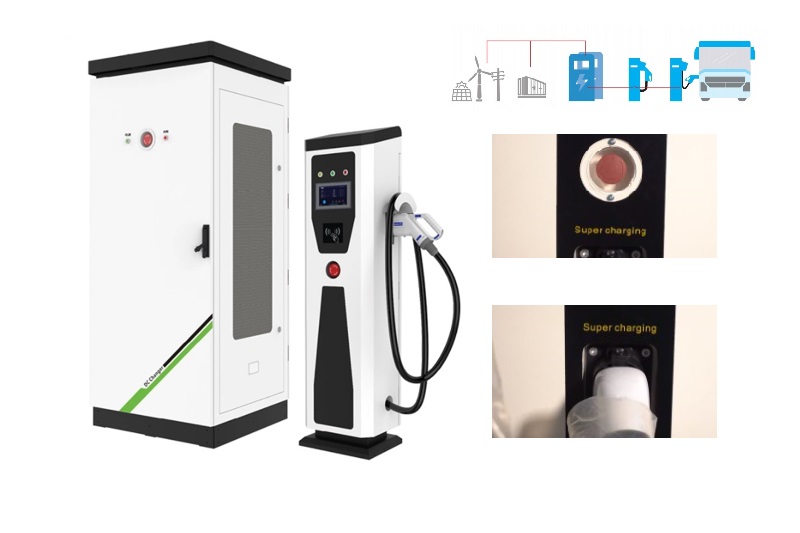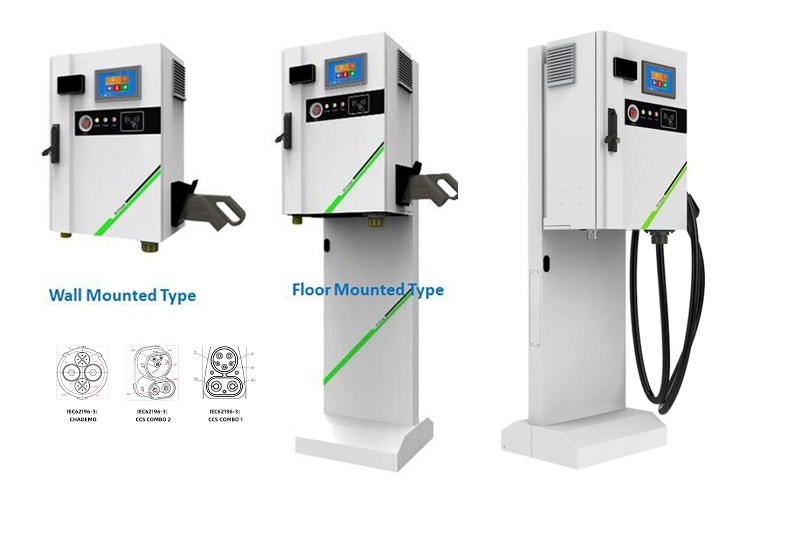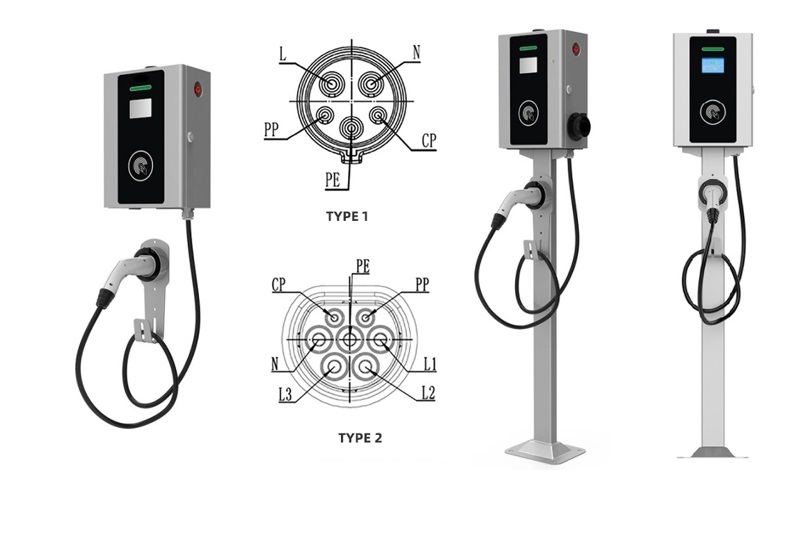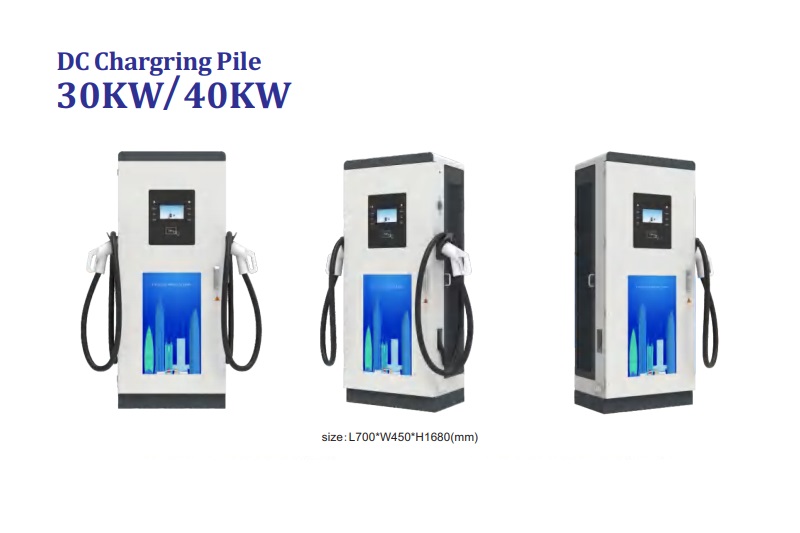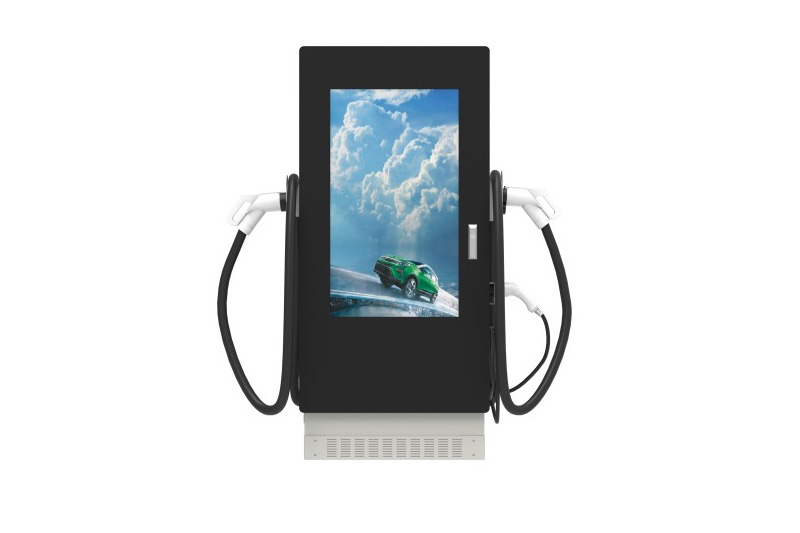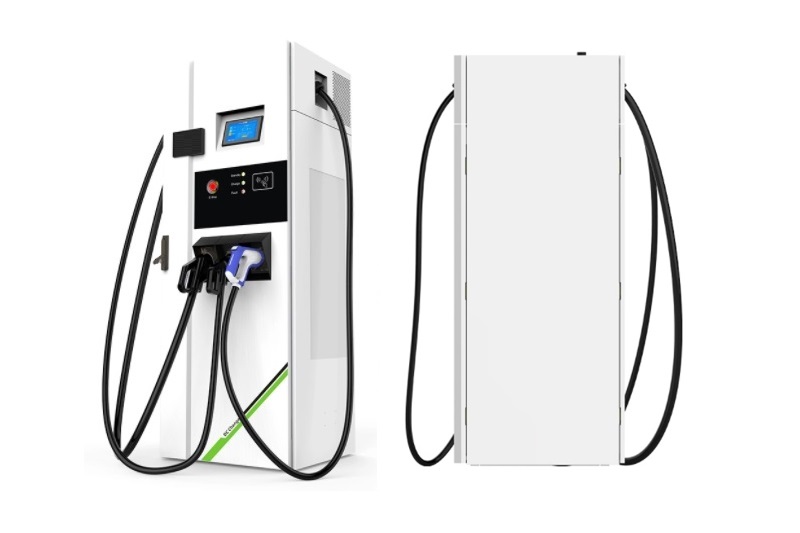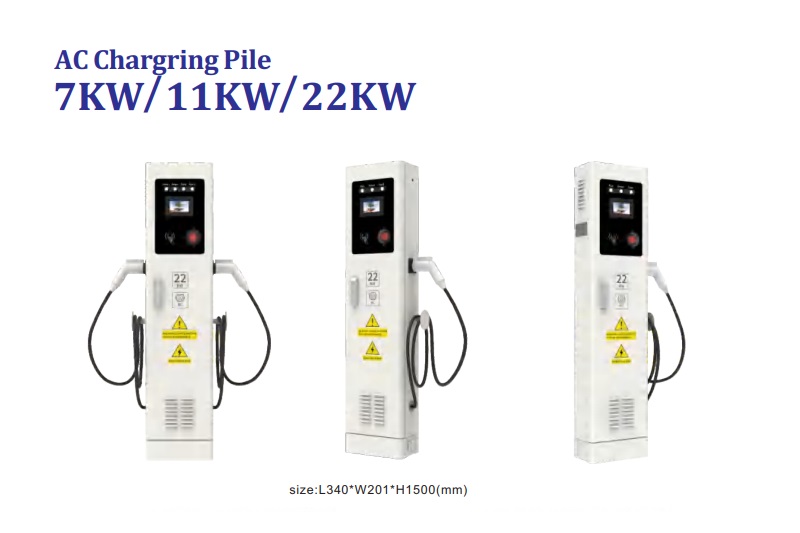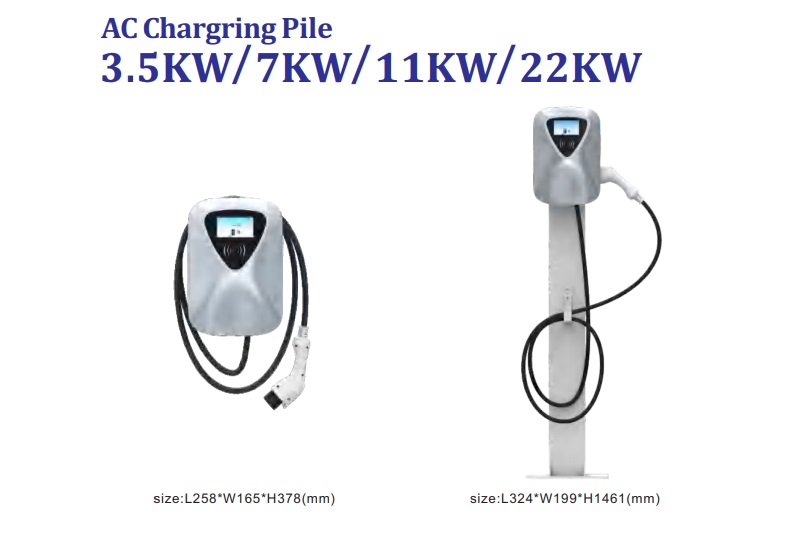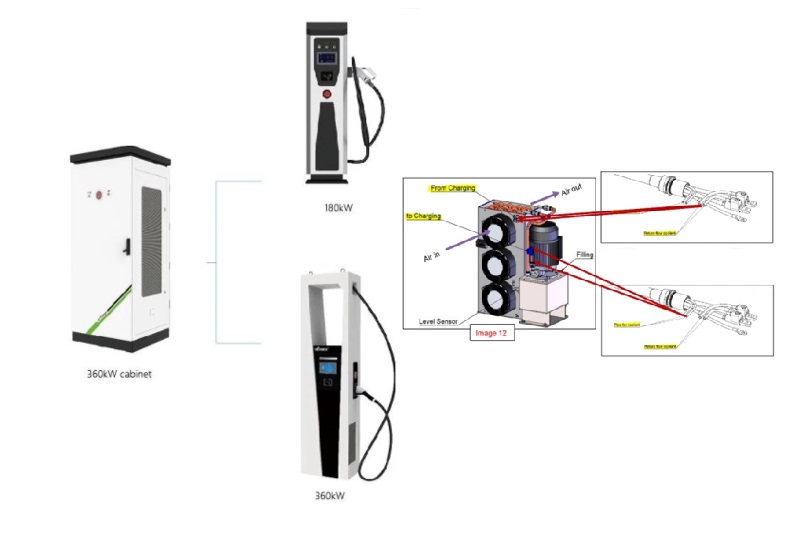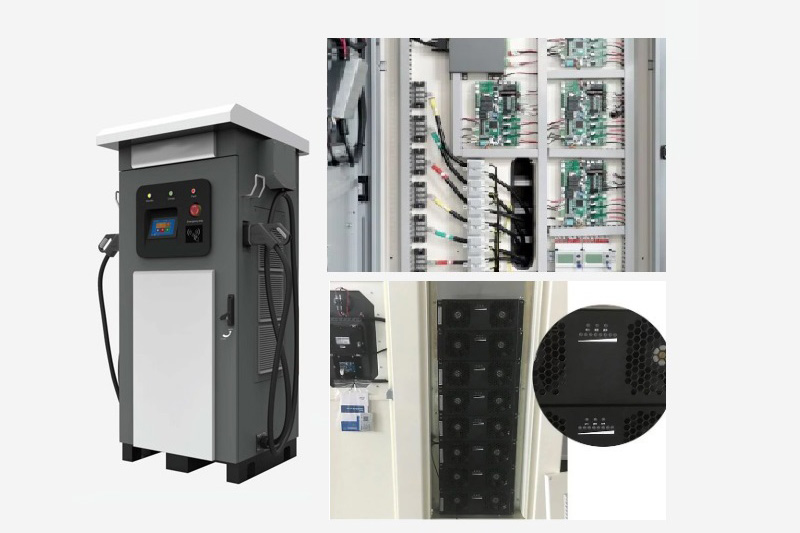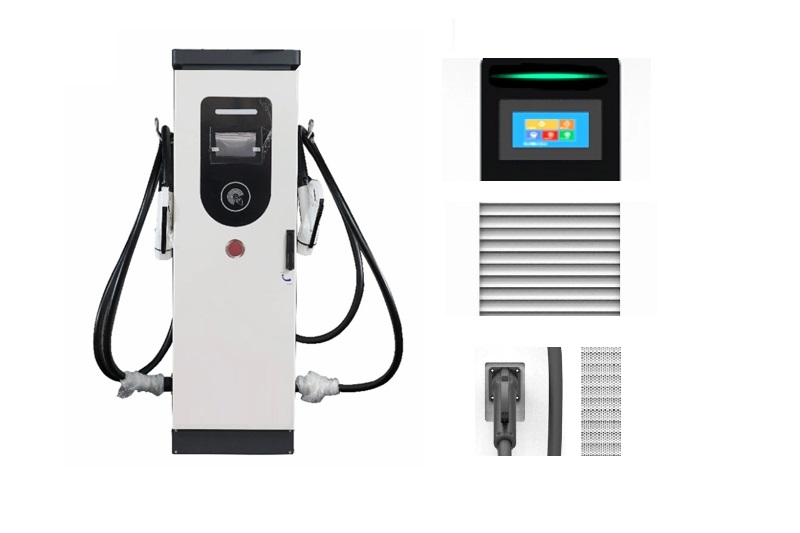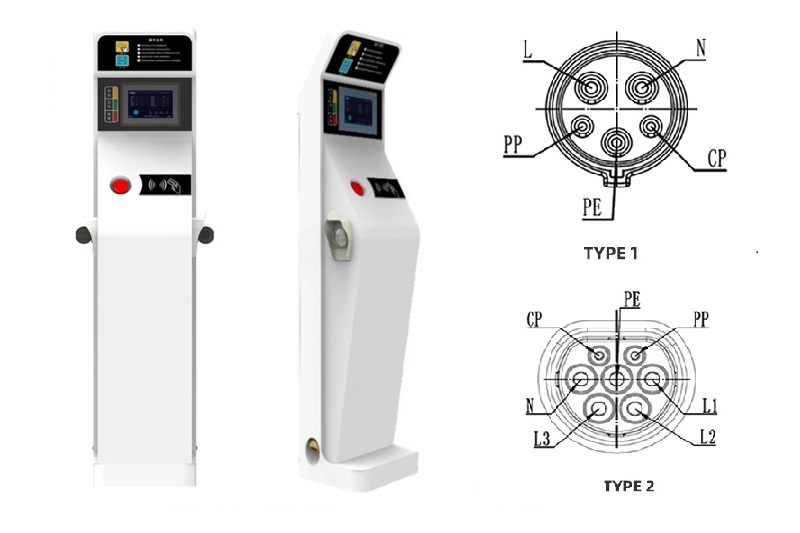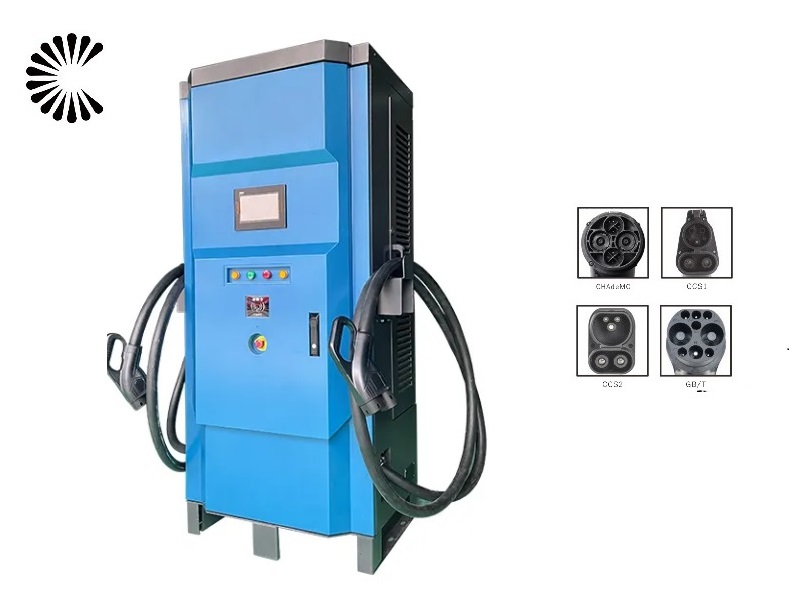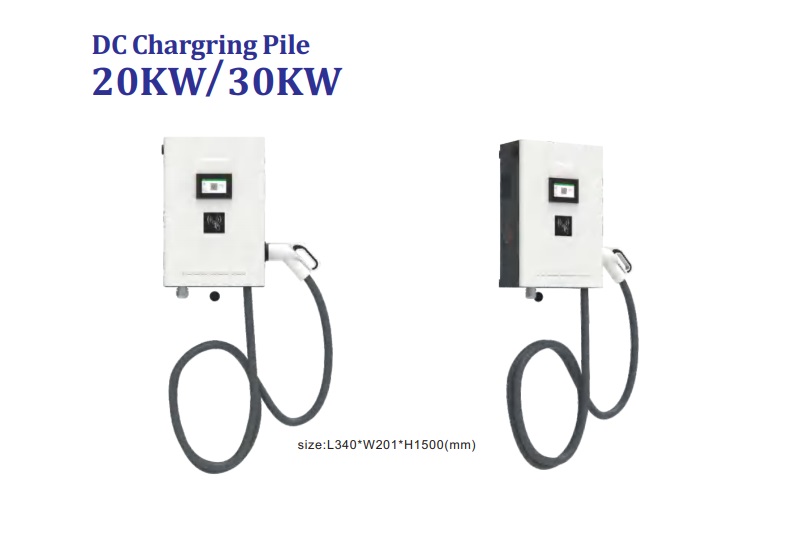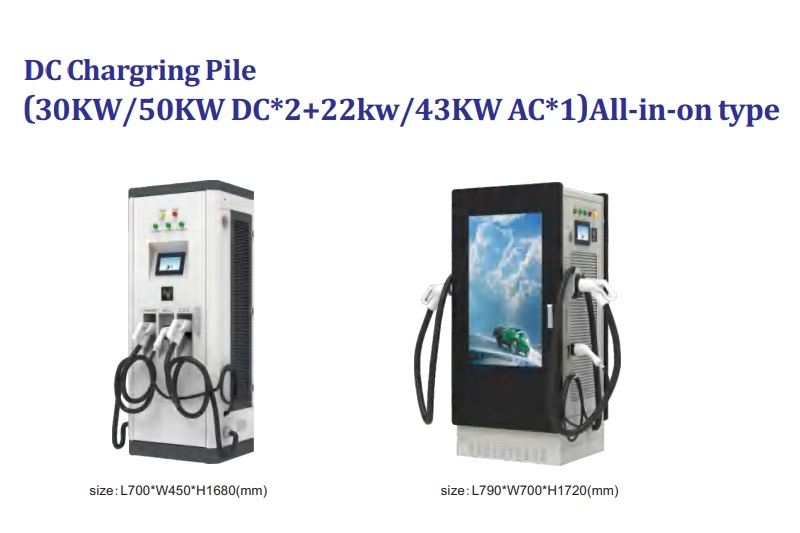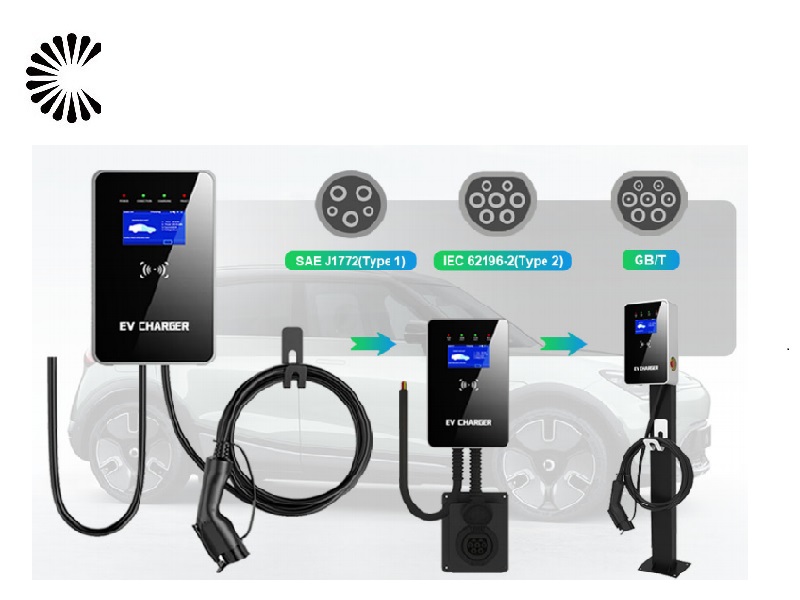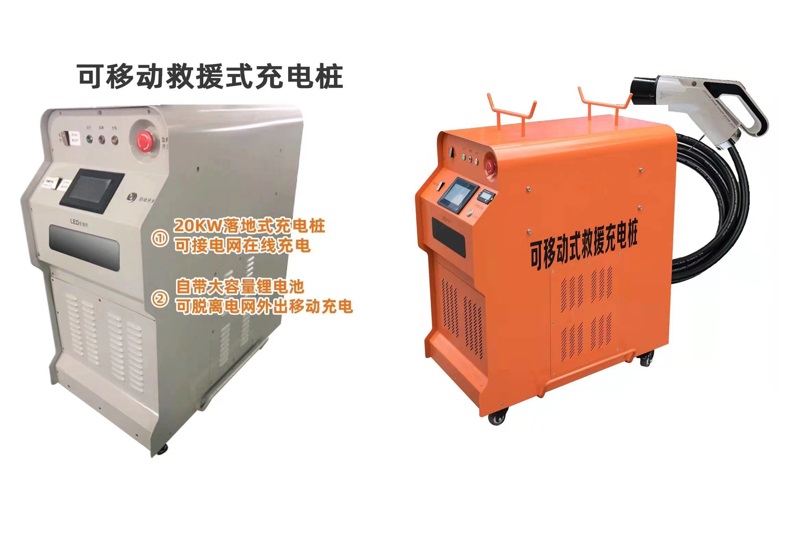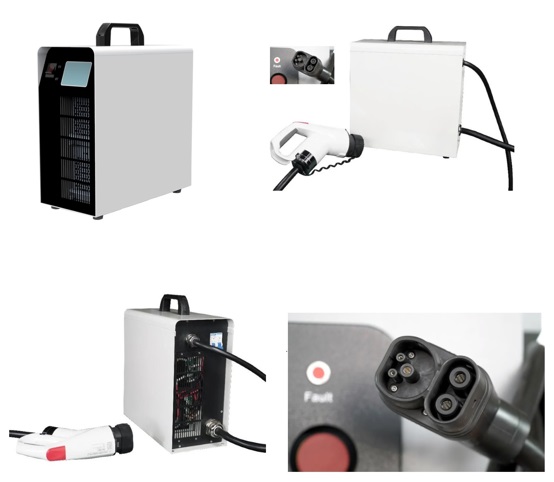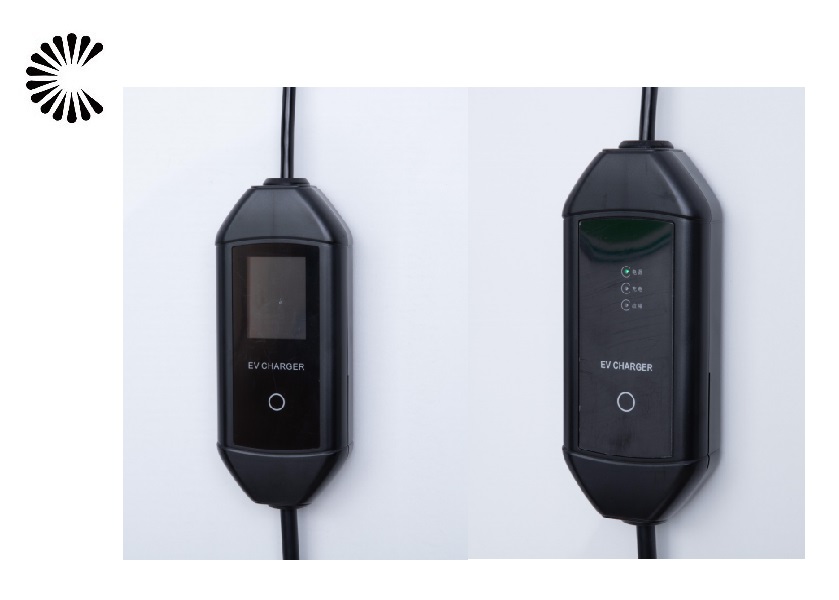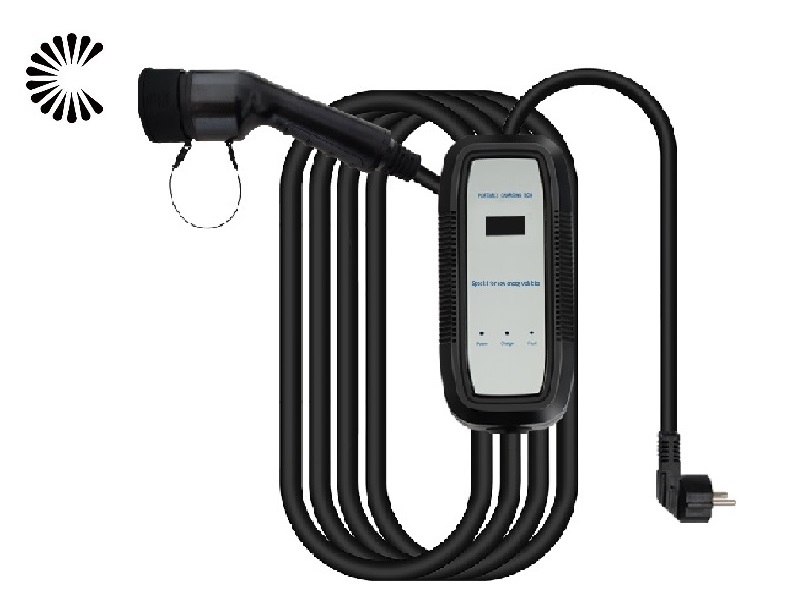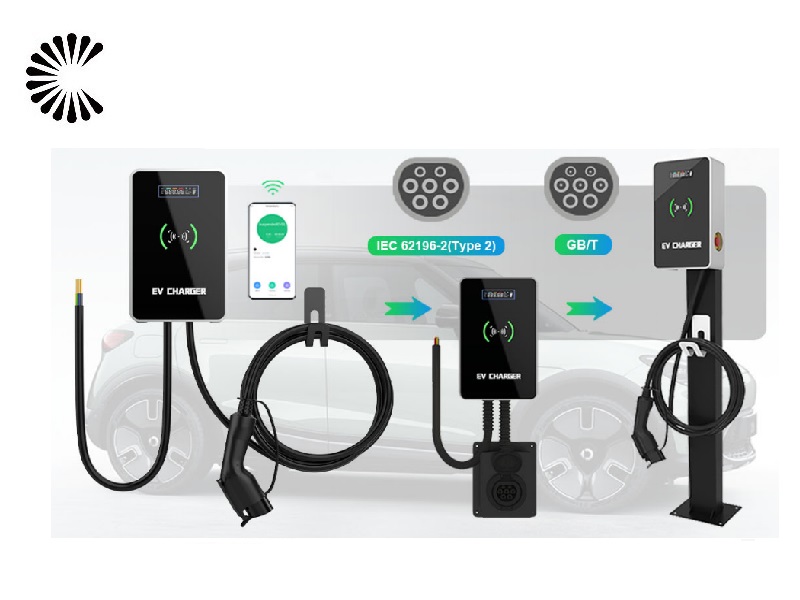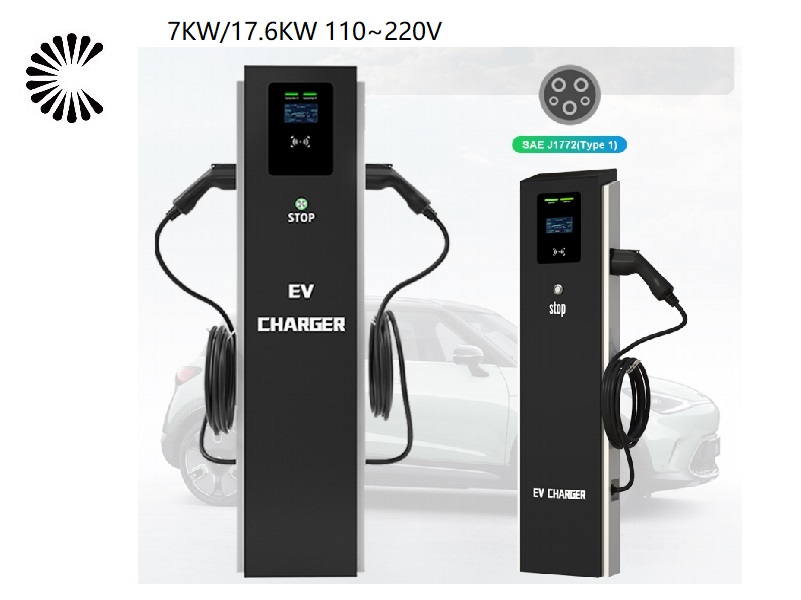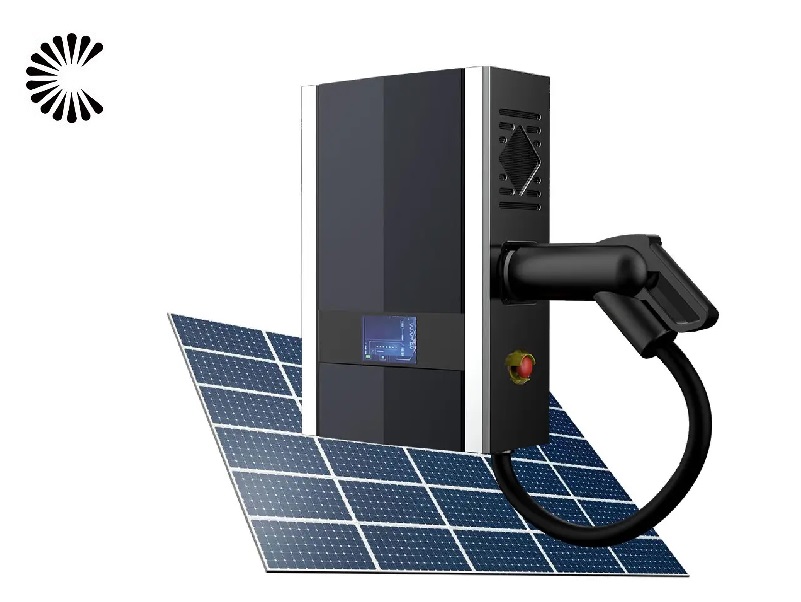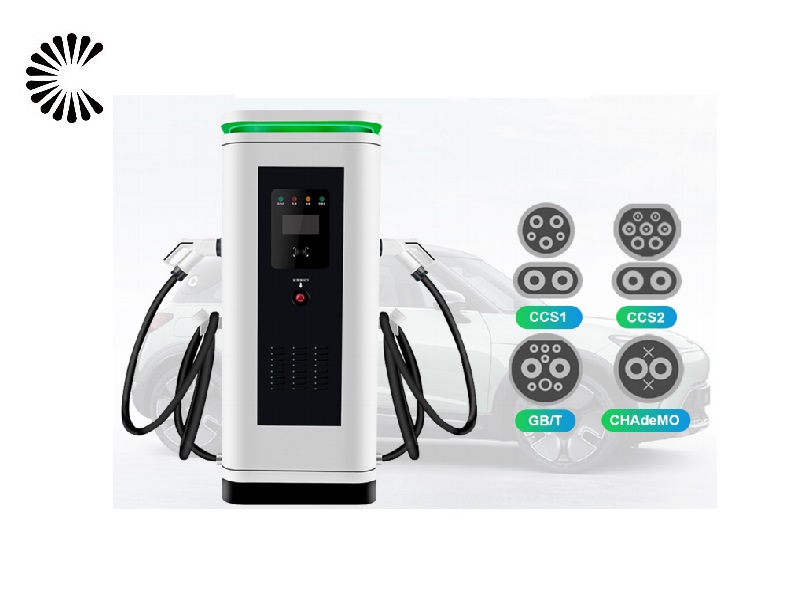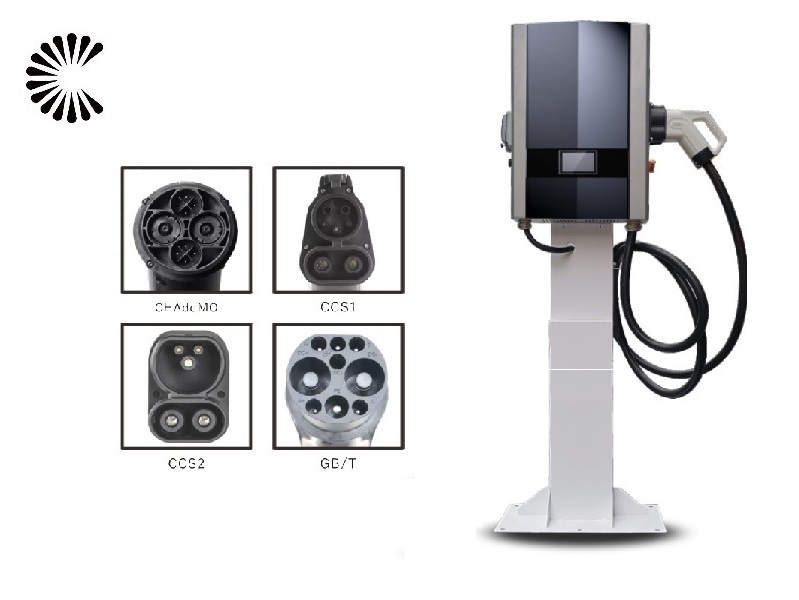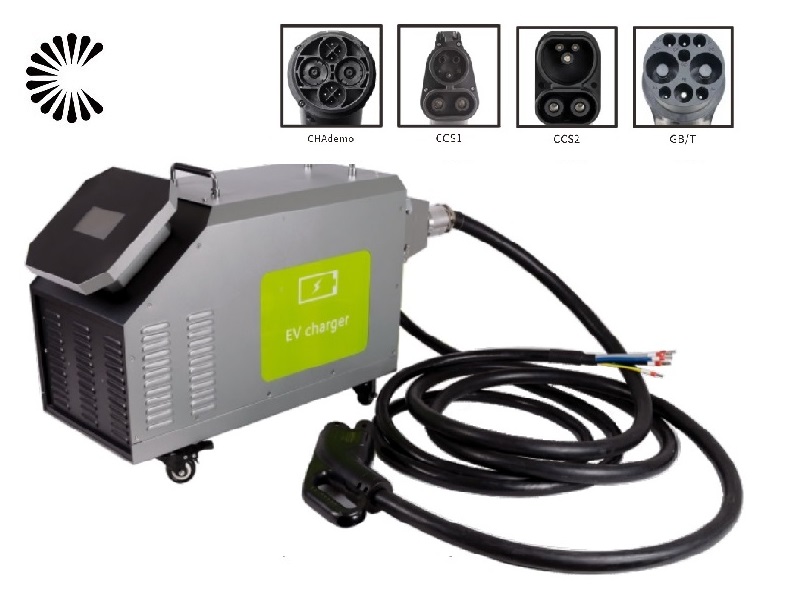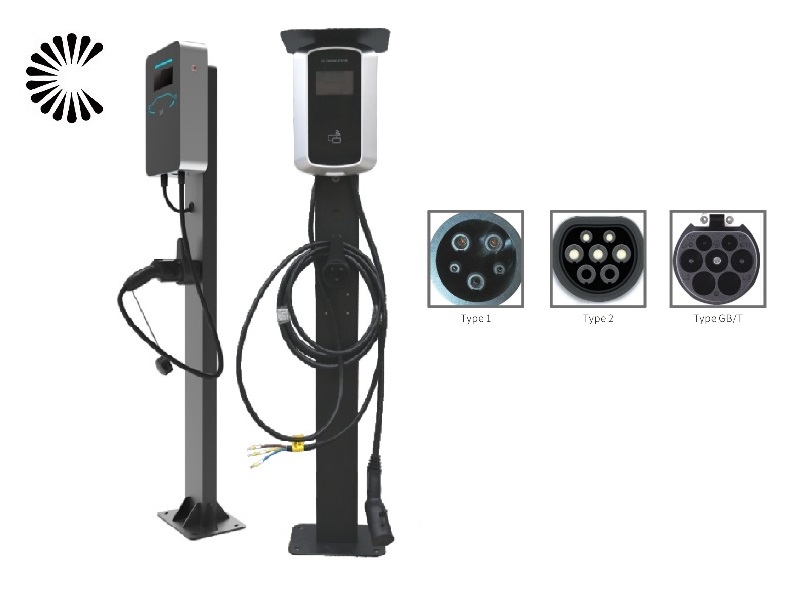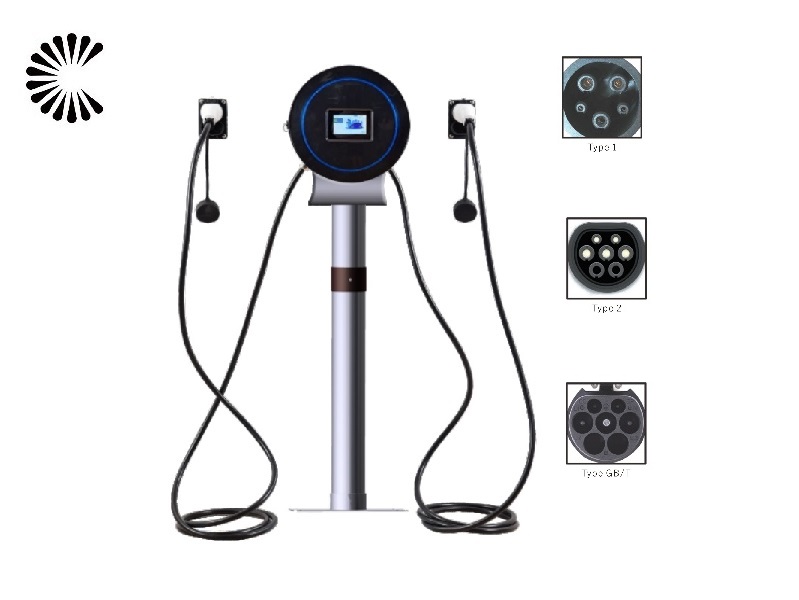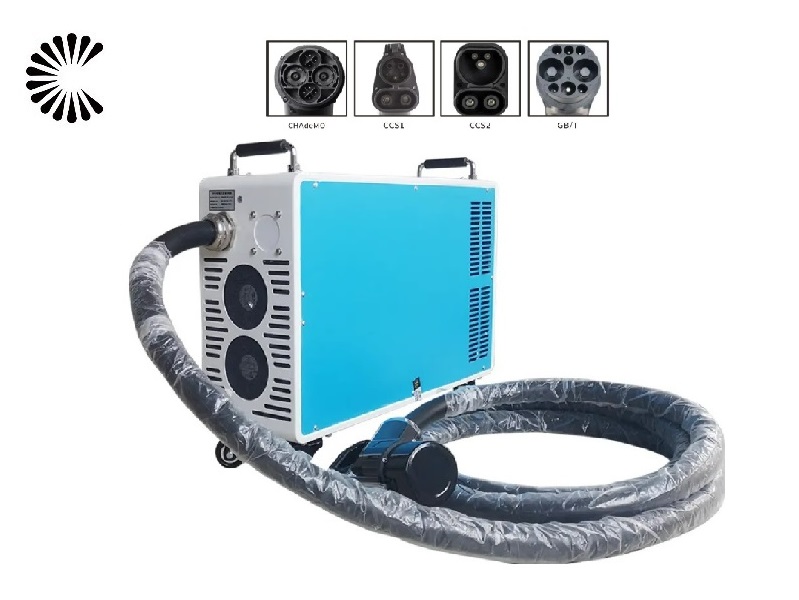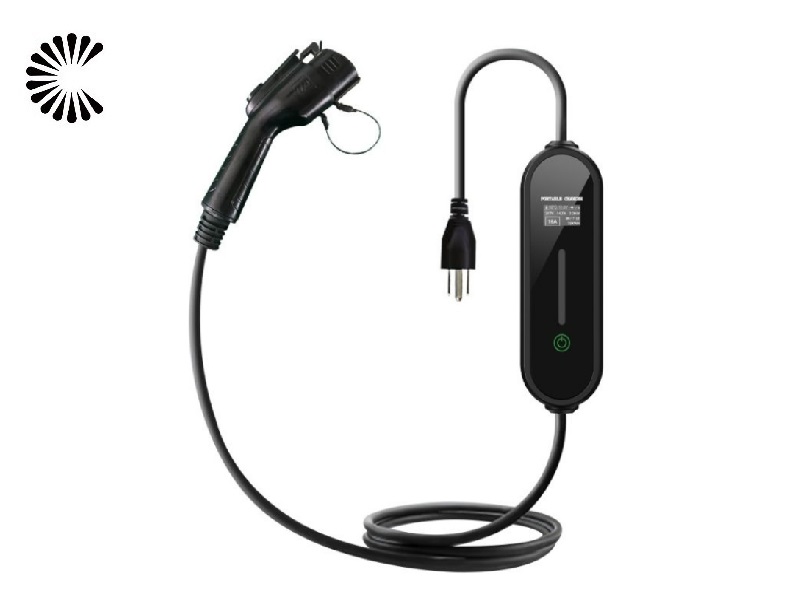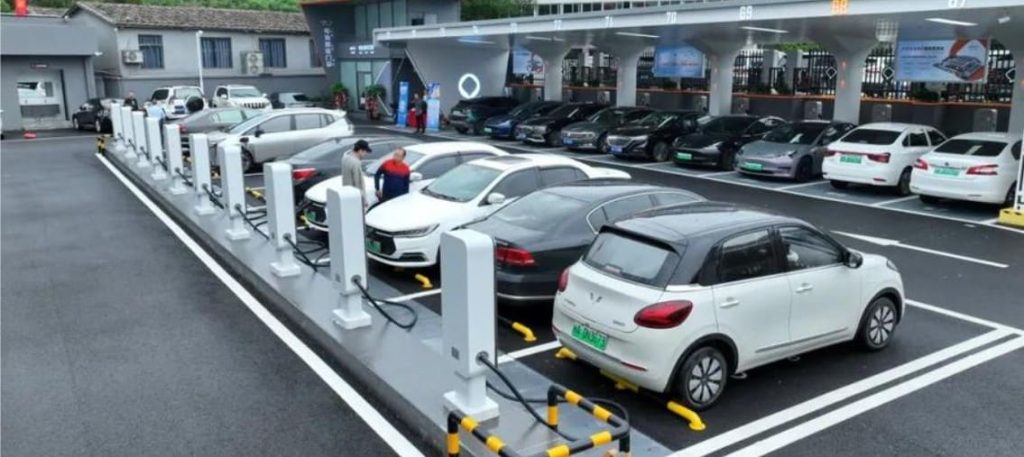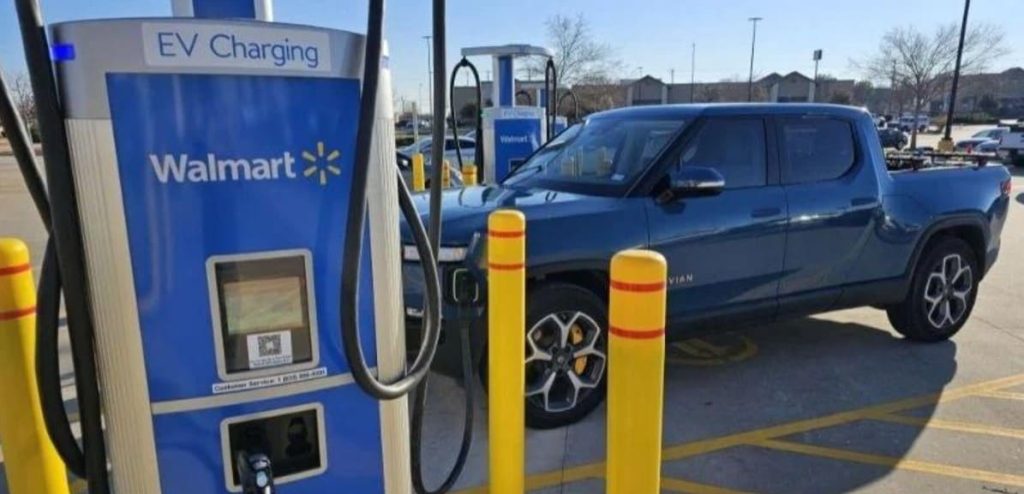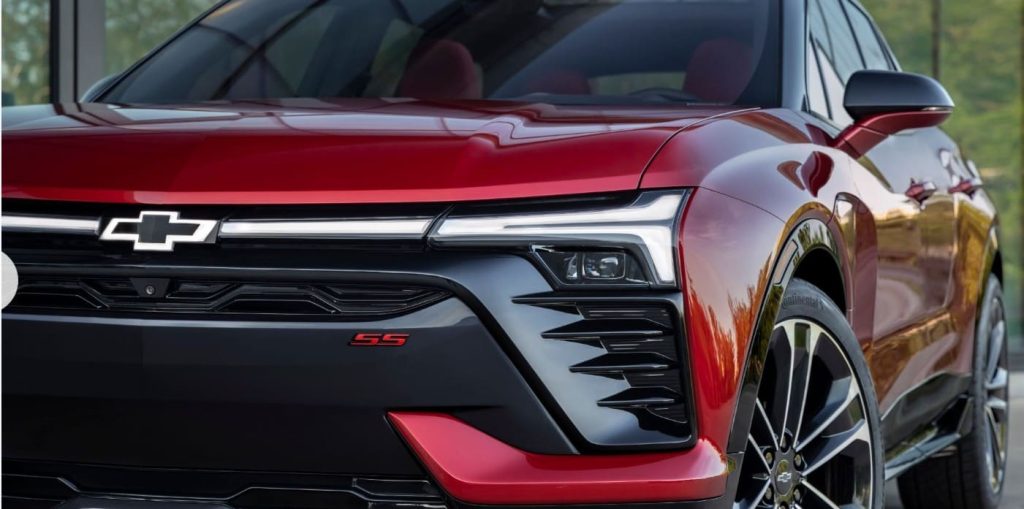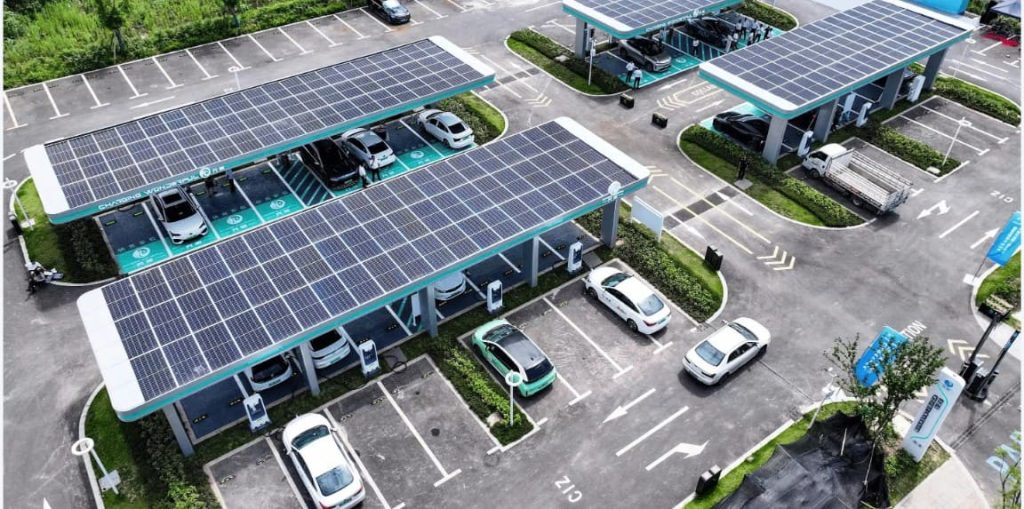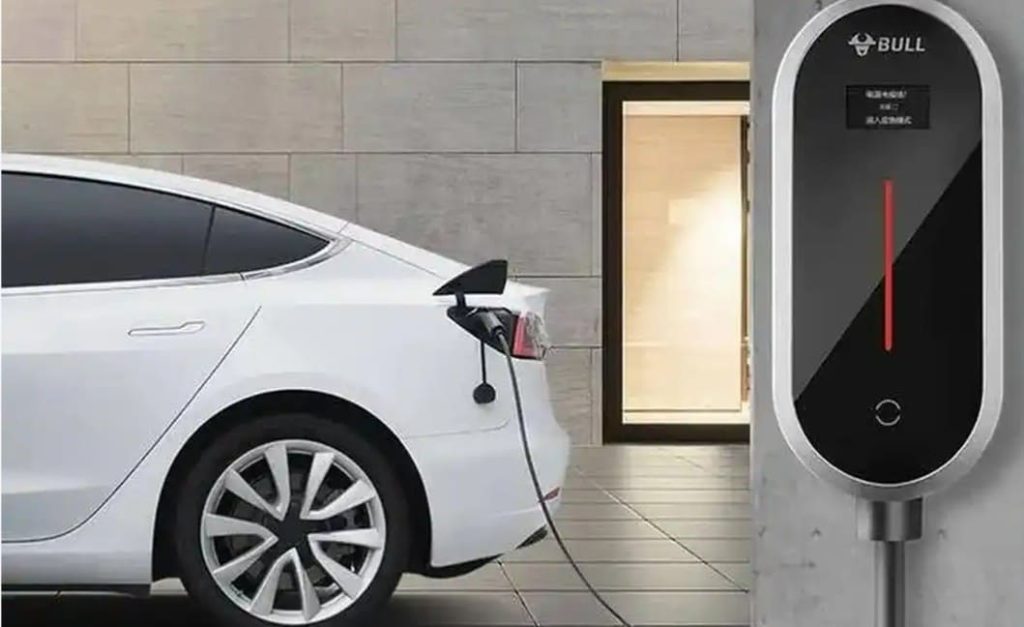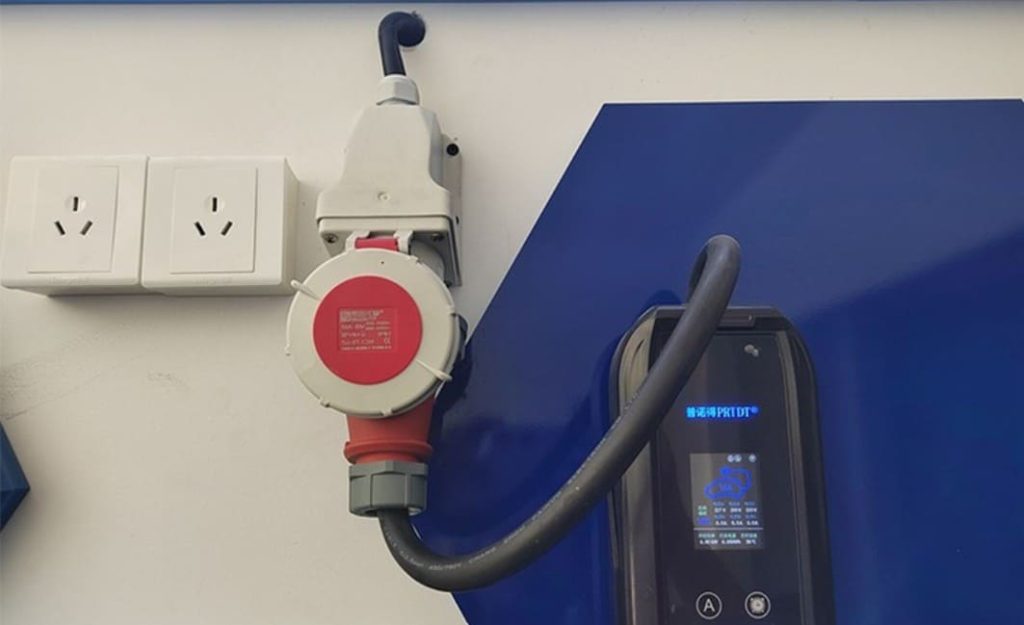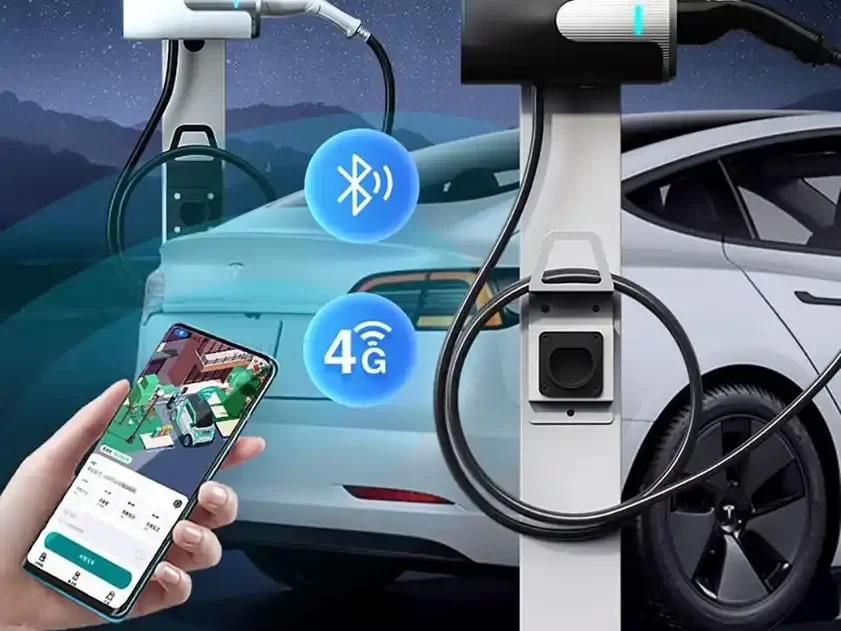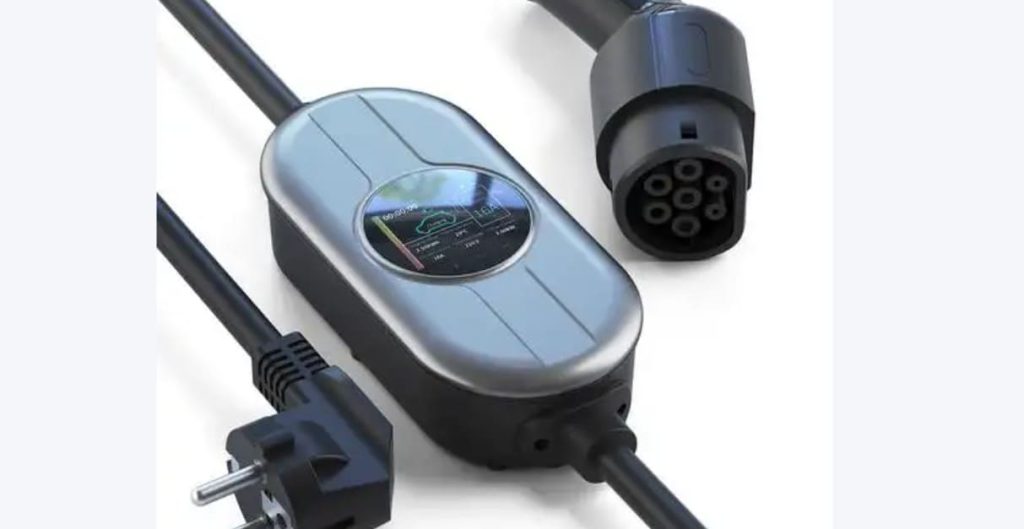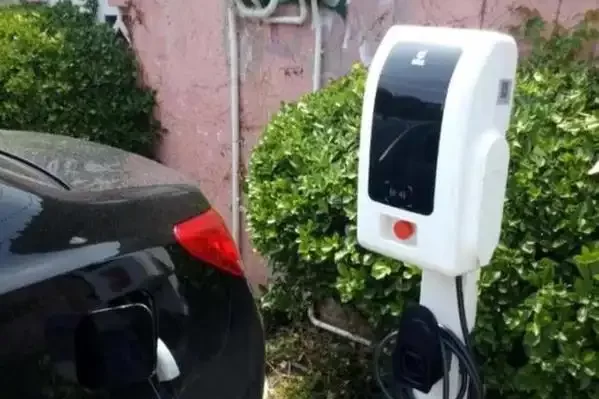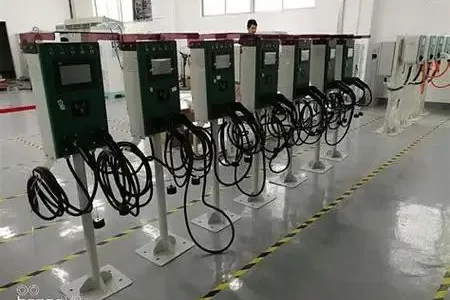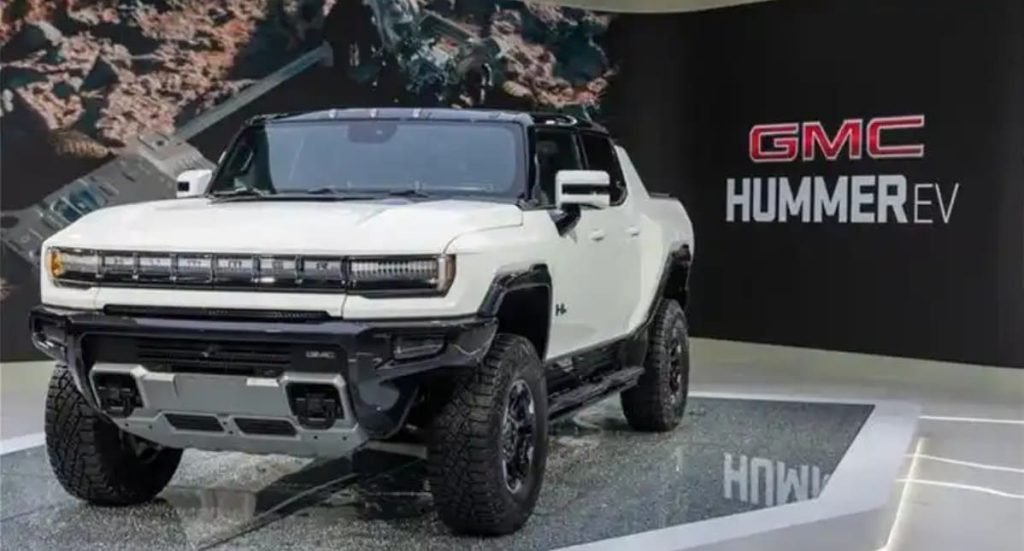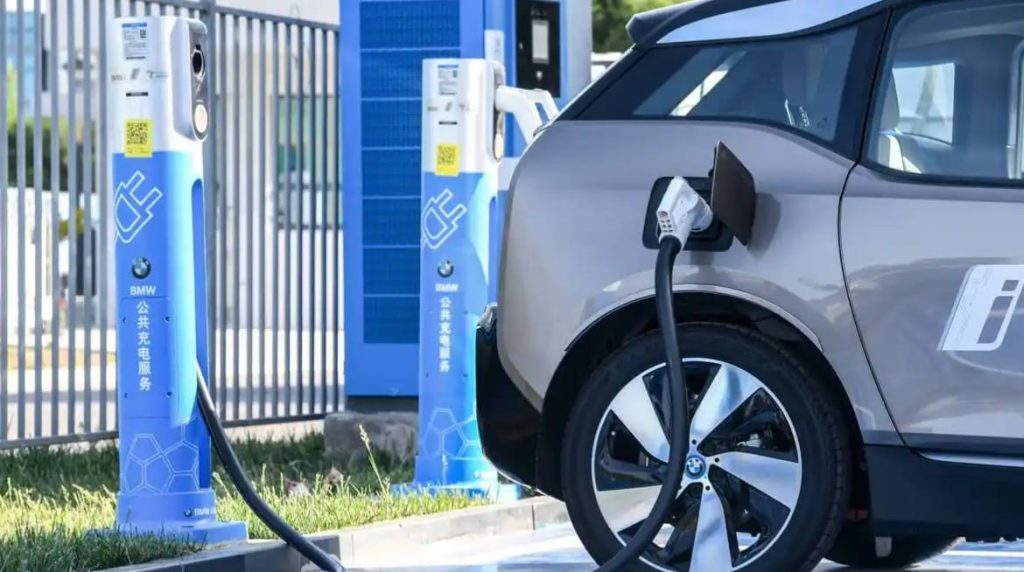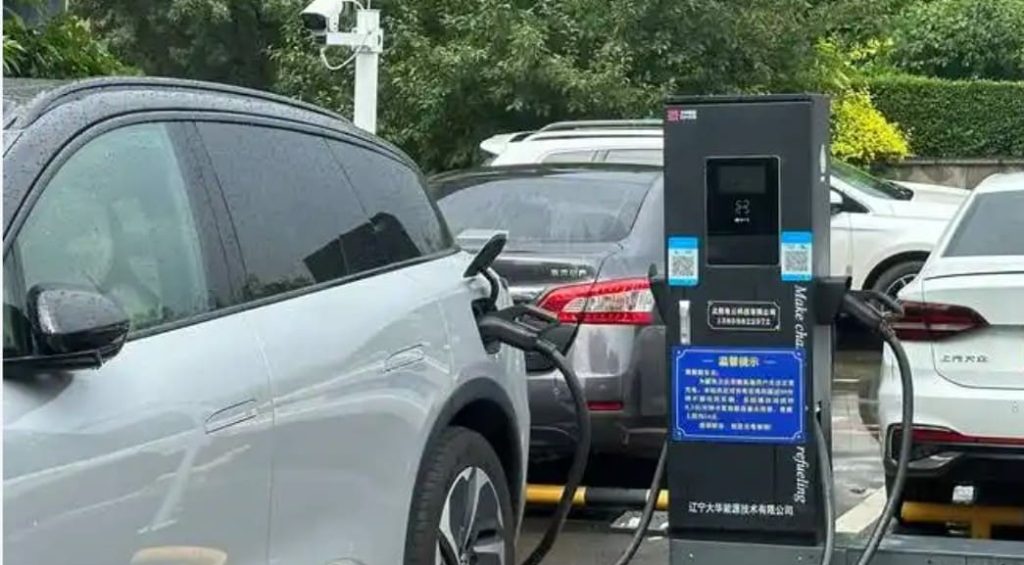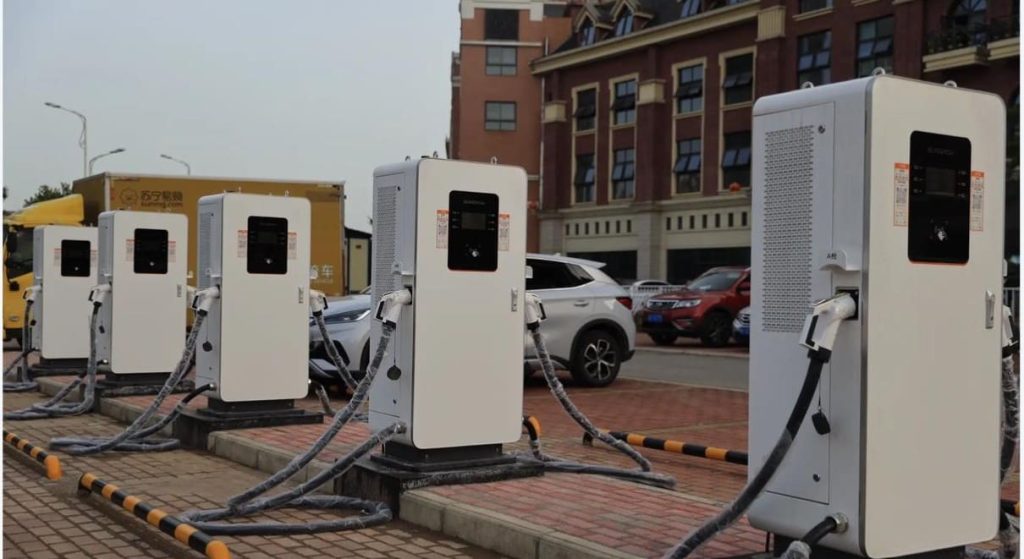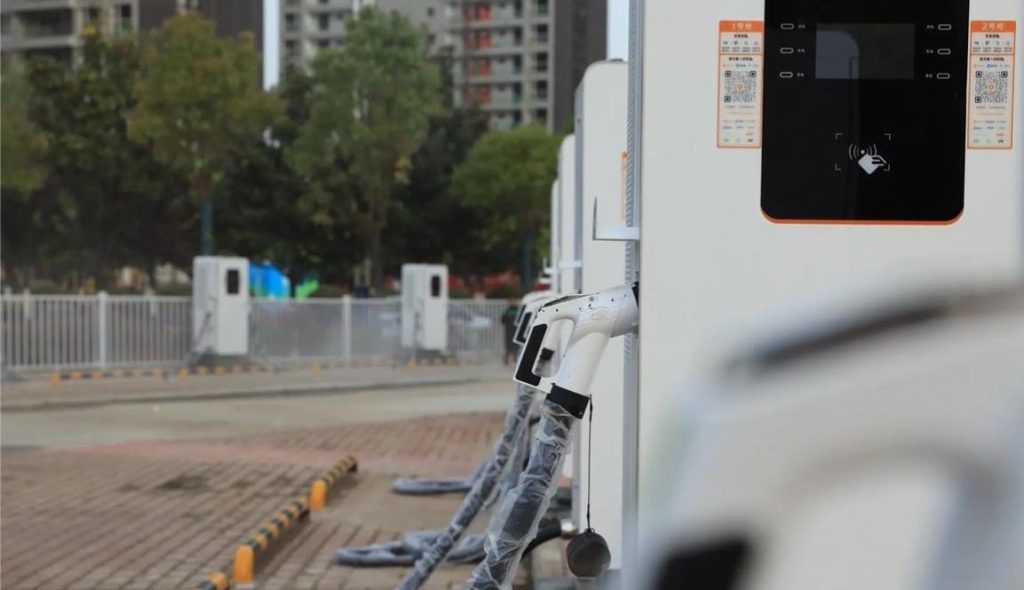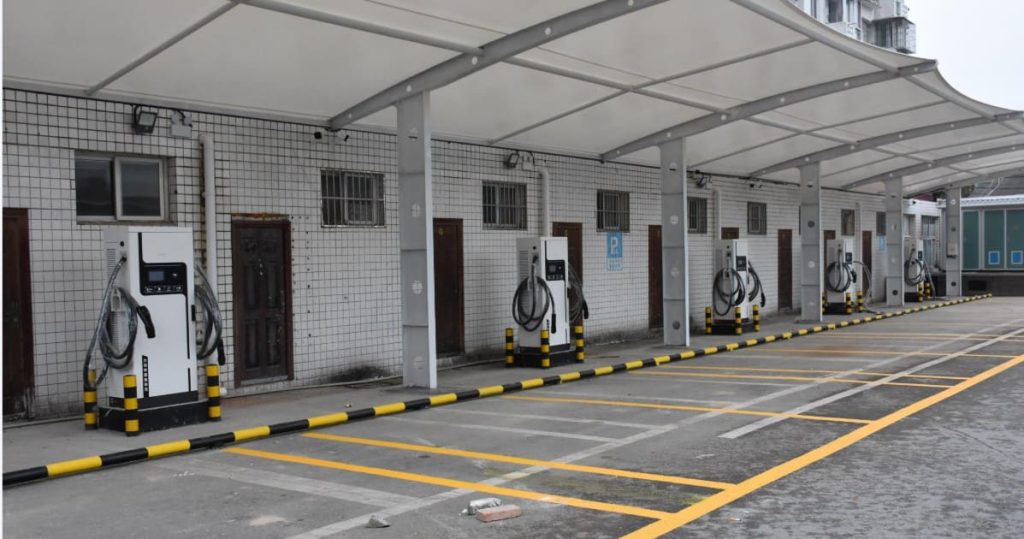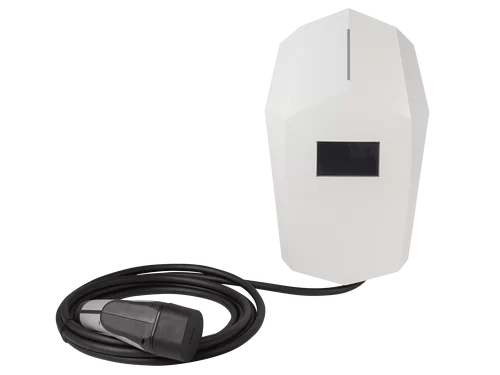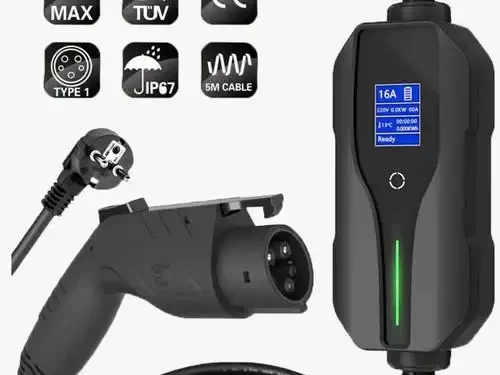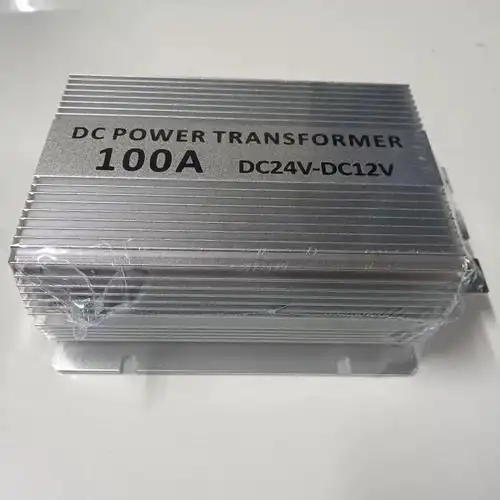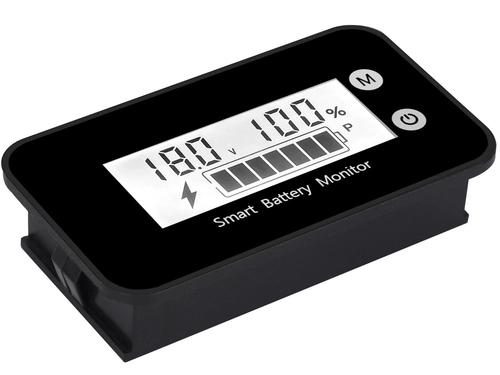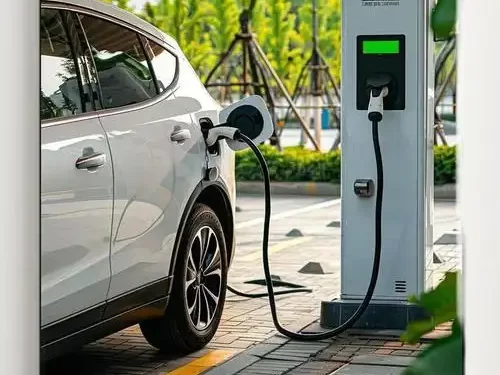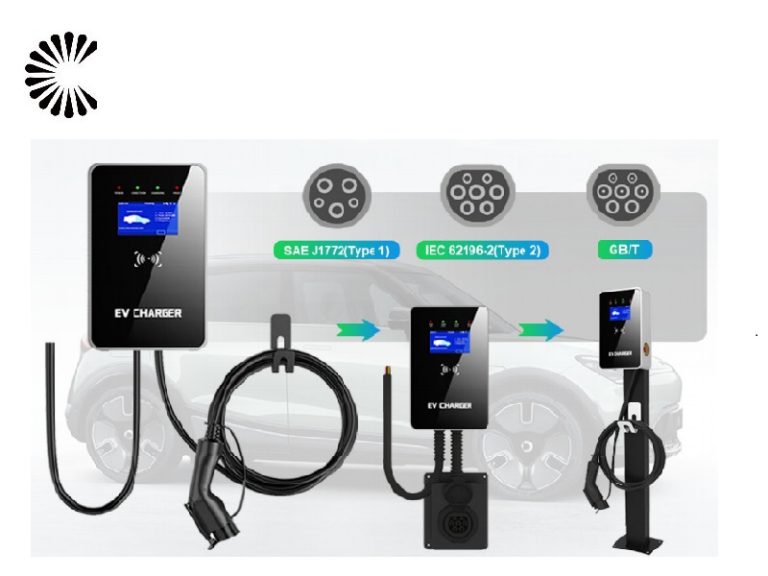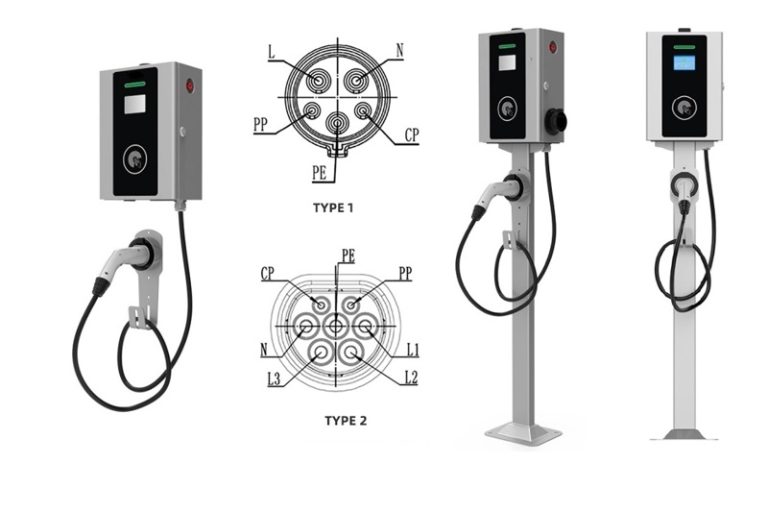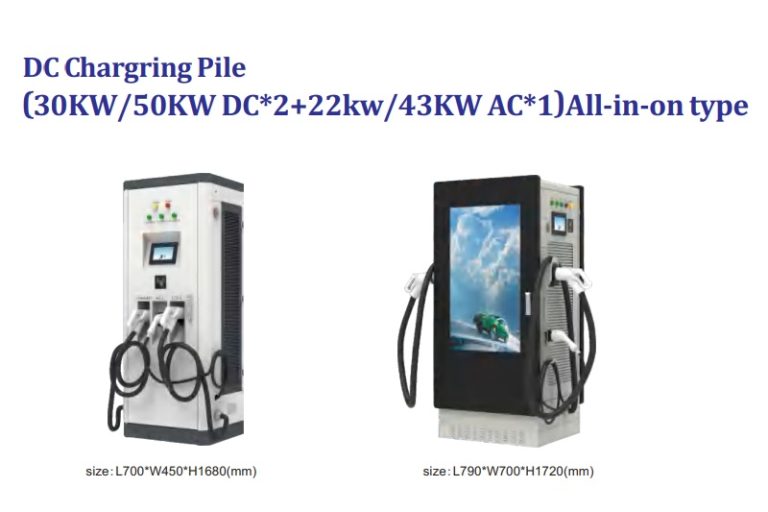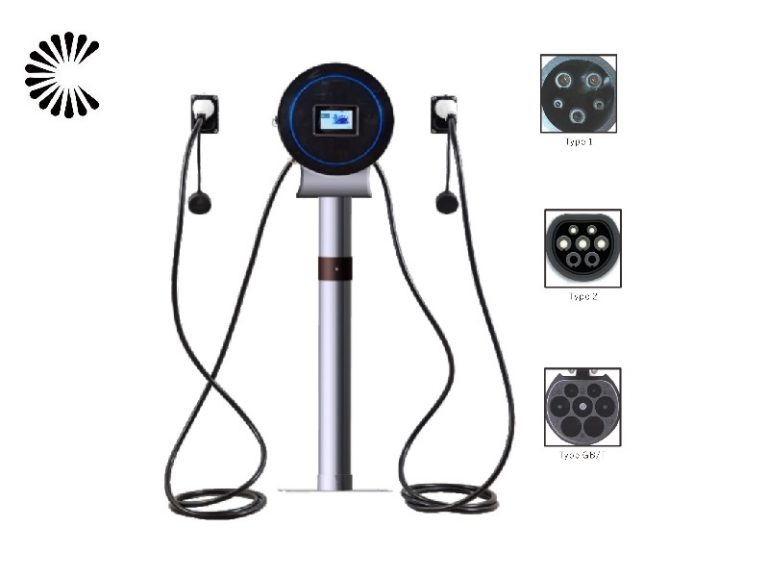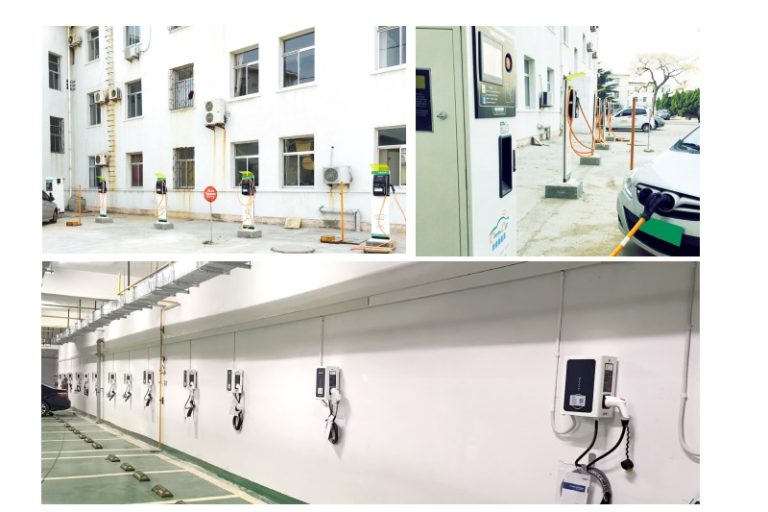60KW EV Charger
Factory Direct Price 30 KW 40KW 60KW GB/T Connector Electric Vehicle EV Charger DC EV Charging Station
Specification of 60KW EV Charger
Parameters of 60KW EV Charger:
| MODEL | 30KW | 40KW | 60KW |
| INPUT | |||
| Nominal Input Voltage | 380 VAC ± 15% | ||
| Acceptable Input Voltage Range | 3-phase, 3ph + N + PE | ||
| Working Voltage Range | 50 – 60 Hz | ||
| Maximum Input Current | 5-200A | 5-200A | 5-200A |
| Frequency Range | ≦ 5% | ||
| Input Power Factor | > 0.99 @nominal voltage (100% load) | ||
| OUTPUT | |||
| Output Current Range (based on 2-output) | 5-200A | 5-200A | 5-200A |
| Output Voltage Range | 200~750VDC (600~750VDC in constant power mode) | ||
| Power Module | 15kW x 2 pcs | 20kW x 2 pcs | 30kW x2 pcs |
| Efficiency | > 94% | ||
| Module Output Current Unbalancce | < 5% | ||
| Module Output Voltage Ripple | < 0.5 | ||
| Module Output Voltage Precision | < 0.5% | ||
| MModule Output Current Precision | < 1% | ||
| Connector Single Mode (max.) | yes | yes | yes |
| Connector Double Mode (max.) | no | yes | yes |
| Power Distribution | Single plug mode / Average output mode | ||
| PROTECTION | |||
| Charger Safety Protection | Over/Under voltage, overload, output power limit function, short circuit, anti-access, earth leakage, lightning and overheat protection | ||
| Interface Safety Portection | Circuit discharge function, insulation monitoring device (IMD) and battery reverse parity protection | ||
| USER INTERFACE | |||
| Status Indiators | Power on, charging and fault | ||
| Communication Protocol | OCPP 1.6 | ||
| Connection Communication Mode | In accordance with DIN 70121 and ISO 15118 standard | ||
| Connection Standard | CCS2 (IEC61851-23) and CHAdeMO 1.0 | ||
| ENVIRONMENT | |||
| Operating Temperature | -25°C to 50°C | ||
| Humidity | 0 – 95% (non-condensing) | ||
| Altitude | < 2000m | ||
| Noise Level | <65dB | ||
| PHYSICAL | |||
| IP Protection | IP54 | ||
| Cable Length | 5m | ||
| Dimension, D x W x H (mm) | 1254mm*690mm*243 excluding plug and cable | ||
| Net Weight (kgs) | 230 | 240 | 260 |
Introduction of 60KW EV Charger
Empowering Electric Mobility!
Step into the future of electric mobility with the innovative 60KW EV Charger! This advanced charging solution is set to redefine the way we power our electric vehicles, offering a seamless and efficient charging experience like never before.
At its core, the 60KW EV Charger boasts an impressive power capacity of 60 kilowatts, ensuring a swift and reliable charging process for your electric car. With this charging speed, you can quickly top up your vehicle’s battery, making it ideal for both short pit stops and longer journeys alike.
Safety is paramount, and the 60KW EV Charger doesn’t disappoint in this aspect. Equipped with cutting-edge technology, it comes equipped with various protective features to safeguard both your vehicle and the charger itself. From overcurrent protection to temperature monitoring, rest assured that your electric car’s battery will be handled with utmost care, prolonging its life and ensuring optimal performance.
Versatility is another key highlight of this charger. Compatible with a wide range of electric vehicles, from compact models to larger electric SUVs, the 60KW EV Charger caters to diverse charging requirements. Whether you’re a city commuter or a weekend adventurer, this charger is ready to meet your needs.
Ease of use is paramount, and the 60KW EV Charger excels in this department. Its user-friendly interface and straightforward controls make charging a breeze, even for those new to electric vehicles. With clear instructions and an intuitive design, you can initiate the charging process effortlessly, keeping your focus on what matters most – the journey ahead.
Embracing electric mobility isn’t just about convenience; it’s a significant step towards a greener and cleaner environment. By opting for the 60KW EV Charger and embracing electric vehicles, you contribute to reducing harmful emissions and combating climate change. Together, we can build a sustainable future for generations to come.
In conclusion, the 60KW EV Charger represents a pivotal milestone in the world of electric mobility. Its impressive charging speed, safety features, and user-friendly design make it an essential tool for EV owners. Take charge of your electric vehicle’s journey and make a positive impact on the environment with the remarkable 60KW EV Charger. Let’s drive towards a cleaner and greener tomorrow, starting today!
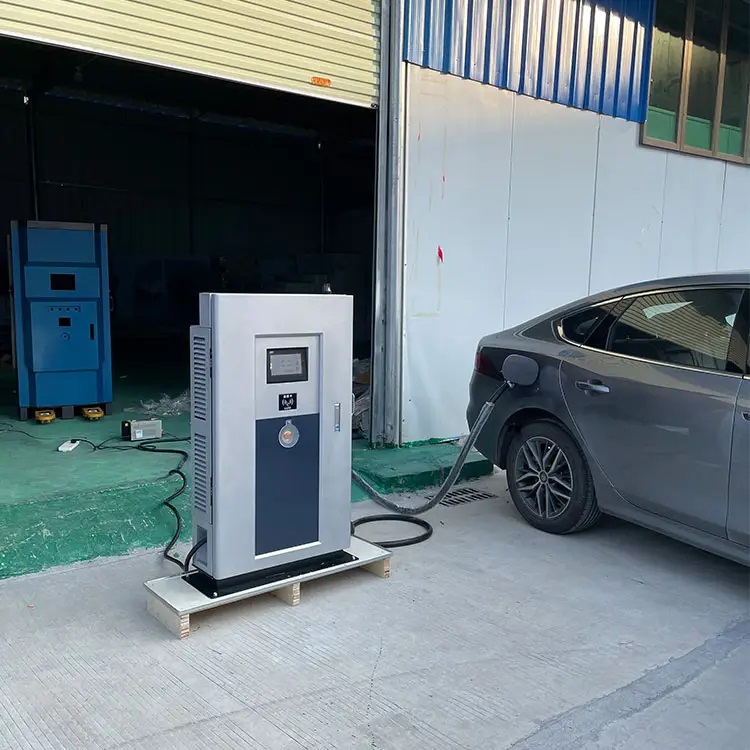
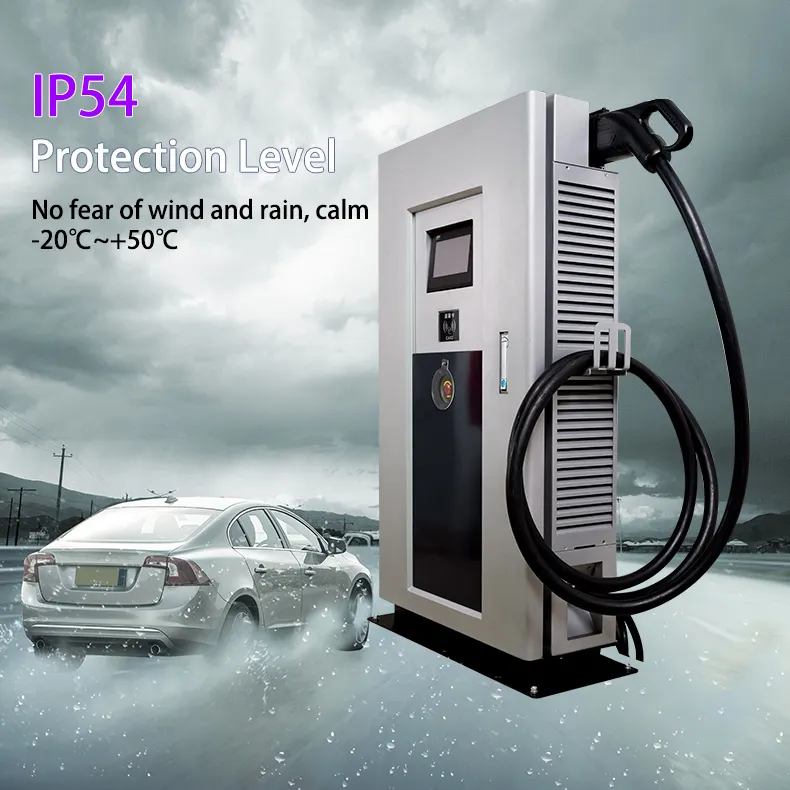
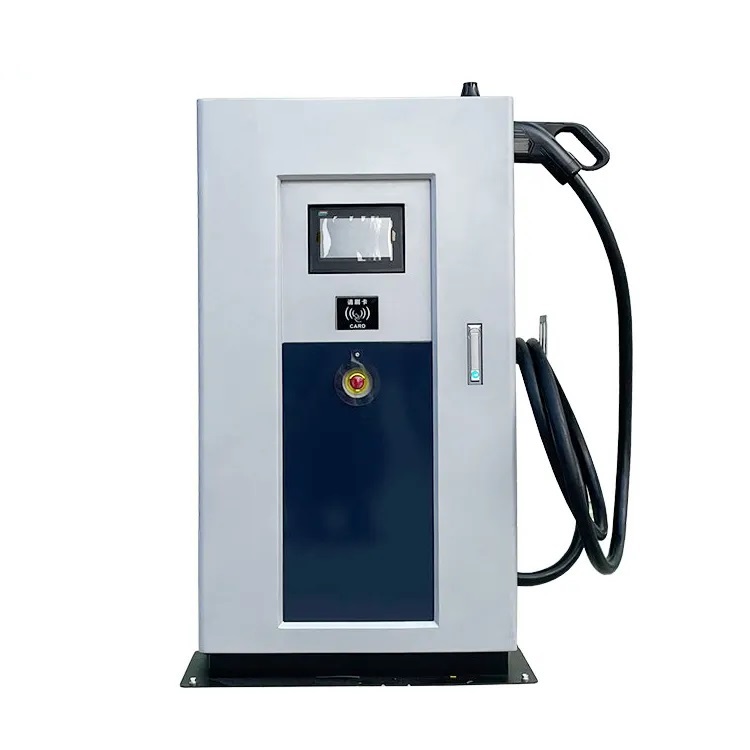
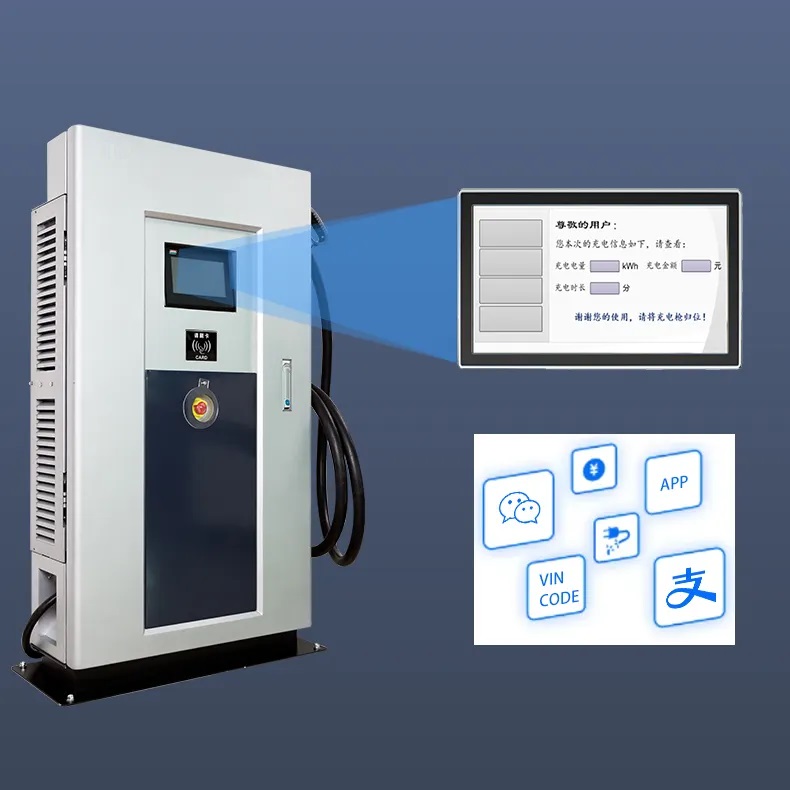
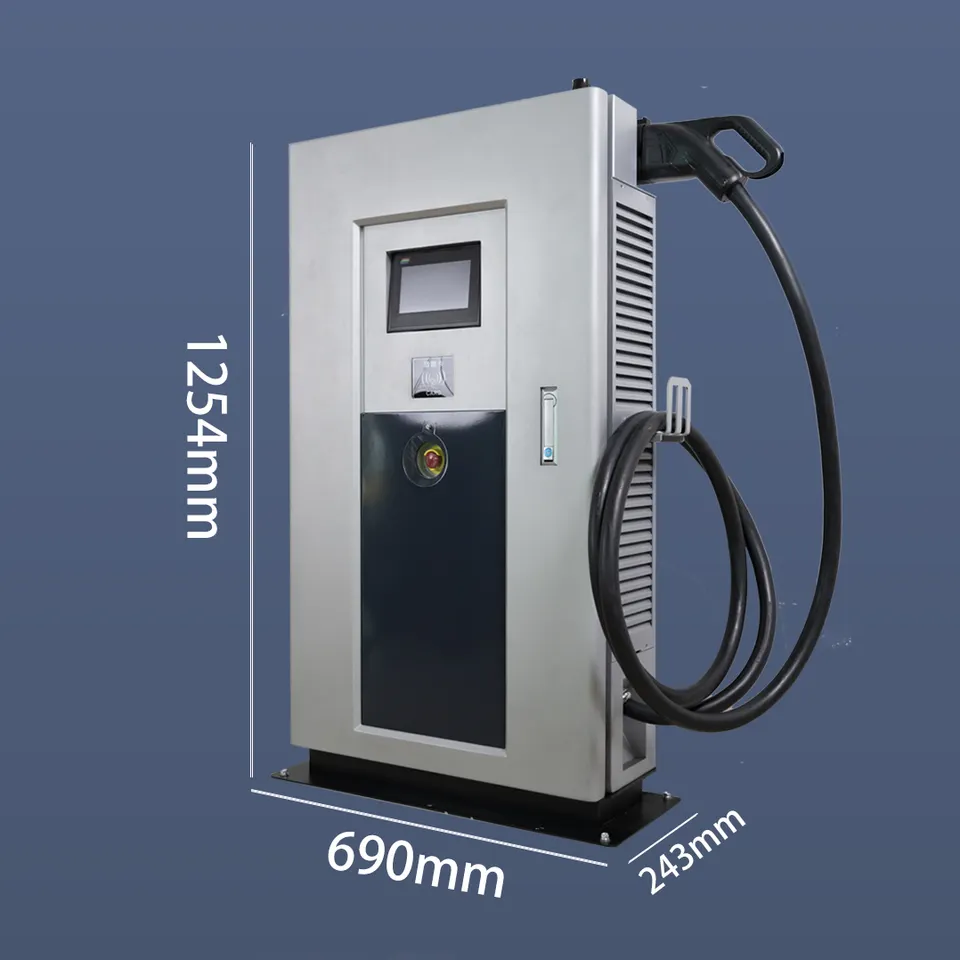
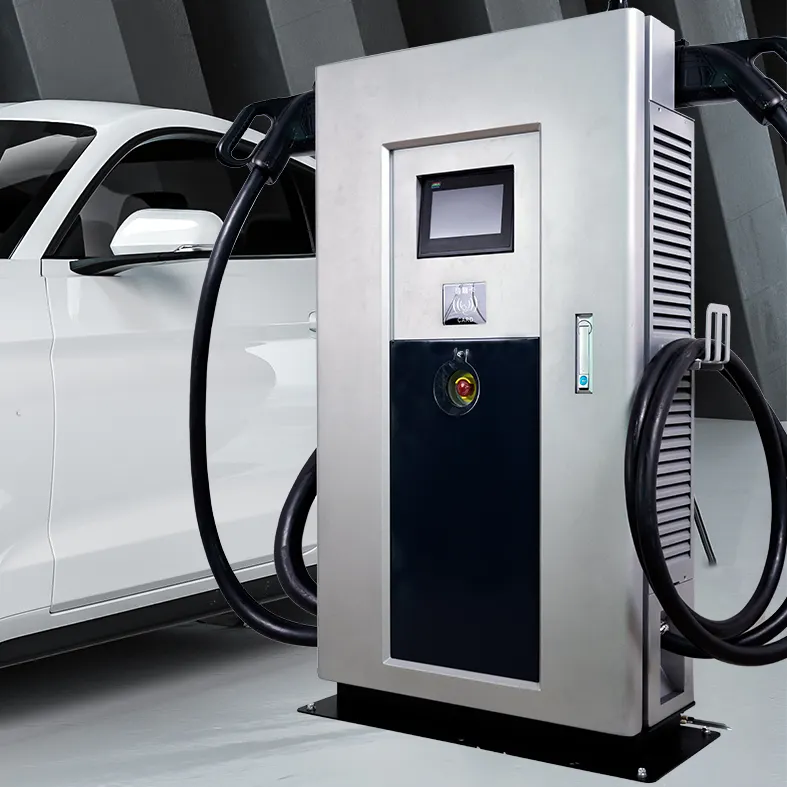
Advantages of 60KW EV Charger
| Business Type: | Manufacturer/Factory | Main Products: | EV Charger |
| Number of Employees: | 100 | Year of Establishment: | 2014.05 |
| Production Capacity | 5000Set/Year | After-sales Service: | Technical Support; on-line teach lessons |
| R&D Capacity: | ODM, OEM | Annual Output Value: | US$5 Million – US$10 Million |
| No. of R&D Staff: | 5 | No. of Production Lines: | 6 |
ChargersGO is a professional manufacturer for EV Charger. Our main product including slow charger, fast charger, DC EV Charger, AC EV Charger, commercial EV Charger, charger for home, EV charger level 1, level 2 and level 3 etc. All products in accordance with the China GMP design requirements. And also we have other certifications.
Business Philosophy
“Quality is the main policy of sales” and “integrity is the principle of success” are the business philosophy of our people. We carry out one-year warranty, lifelong maintenance service, with technical consultation and other services, and long-term supply of equipment. Welcome new and old customers to negotiate cooperation!
Small Machine Packing:
Retail Small EV Charger shipped with express.
Wsholesale Small EV Charger packed with export fumigation-free wooden cases, goes with bulk shipment or in container.
When packing small machines for sea shipment, it is important to take measures to ensure that the machines are protected from damage during transit. Here are some general steps that a manufacturer may follow when packing small machines for sea shipment:
- Clean and dry the charger: Before packing, the charger should be thoroughly cleaned and dried to prevent any moisture or debris from causing damage during transit.
- Disassemble the machine: If possible, the charger should be disassembled into its component parts to reduce its overall size and make it easier to pack.
- Wrap the charger in protective material: The charger should be wrapped in a layer of protective material, such as bubble wrap or foam, to protect it from scratches and impact during transit.
- Place the charger in a sturdy box: The wrapped charger should then be placed in a sturdy box that is appropriate for the size and weight of the machine. The box should be made of durable material, such as corrugated cardboard or plywood, and should be able to withstand the rigors of sea transit.
- Add packing material: The box should be filled with packing material, such as packing peanuts or air pillows, to provide cushioning and prevent the machine from shifting during transit.
- Seal the box: The box should be securely sealed with high-quality packing tape to prevent it from opening during transit.
- Label the box: The box should be clearly labeled with the charger’s name, weight, and any other relevant information, as well as the destination address and contact information.
Overall, the goal is to pack the small chargers in a way that will protect it from damage during transit and ensure that it arrives at its destination in good condition. It is important to follow proper packing procedures and use high-quality packing materials to minimize the risk of damage during sea shipment.
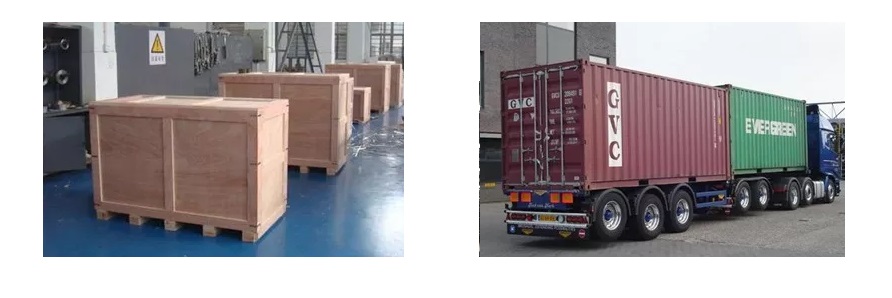
Large Machine Packing:
Packing a large machine for sea shipment can be a complex and challenging task. However, with careful planning and attention to detail, it is possible to pack a large machine for sea shipment in a way that will ensure that it arrives at its destination in good condition. Here are some general steps that a manufacturer may follow when packing up a large machine for sea shipment:
- Clean and prepare the machine: Before packing, the machine should be thoroughly cleaned and prepared. All fluids, such as oil or coolant, should be drained, and any loose or detachable parts should be removed.
- Disassemble the machine: If possible, the machine should be disassembled into its component parts to reduce its overall size and make it easier to pack. Each part should be carefully labeled and numbered to ensure that it can be easily reassembled at the destination.
- Protect delicate parts: Delicate or fragile parts should be wrapped in protective material, such as bubble wrap or foam, to protect them from damage during transit.
- Build a custom crate: A custom crate should be built around the machine to provide a secure and sturdy enclosure. The crate should be made of durable material, such as plywood, and should be designed to fit the machine snugly. The crate should also include braces or supports to prevent the machine from shifting during transit.
- Add cushioning material: The crate should be filled with cushioning material, such as packing peanuts or air pillows, to provide extra protection and prevent the machine from moving or shifting during transit.
- Securely fasten the machine: The machine should be securely fastened to the crate to prevent it from moving or shifting during transit. This may involve using straps, bolts, or other fasteners to hold the machine in place.
- Seal and label the crate: The crate should be securely sealed with high-quality packing tape, and should be clearly labeled with the machine’s name, weight, and any other relevant information. The destination address and contact information should also be clearly marked on the crate.
Overall, packing a large machine for sea shipment requires careful planning and attention to detail. It is important to use high-quality materials and follow proper packing procedures to ensure that the machine arrives at its destination in good condition. A professional packing and shipping company may be consulted to ensure that the machine is properly packed and prepared for sea shipment.


60KW EV Charger Wholesale Manufacturer In China
We are proud to introduce ourselves as a reputable wholesale manufacturer of 60KW EV Chargers, dedicated to driving the transition towards sustainable mobility solutions. Our company is committed to producing high-quality, cutting-edge charging solutions that cater to the growing demand for electric vehicles across the globe.
Related Products
Related Articles
Contact Us
Frequently Asked Questions (See More FAQ)
-
Are you a factory or trading company?
We are a professional manufacturer of new and sustainable energy applications for over 20 years.
-
What is the warranty?
Warranty period is 12 months. In this period, we will supply technical support and replace the new parts by free,customers are in charge of delivery.
-
What is the packing method?
Generally, we pack our goods in brown cartons. If you have legally registered patent, we can pack the goods in your branded boxes after getting your authorization letters.
-
What is your terms of payment?
T/T 50% as deposit, and 50% before delivery. We’ll show you the photos of the products and packages before you pay the balance.
-
What is your terms of trade?
EXW, FOB, CFR, CIF, DAP,DDU,DDP
-
How about your delivery time?
Generally, it will take 3 to 7 working days after receiving your advance payment. The specific delivery time depends on the items and the quantity of your order.
-
Can you produce according to the samples?
Yes, we can produce by your samples or technical drawings. We can build the molds and fixtures.
-
What is your sample policy?
We can supply the sample if we have ready parts in stock, but the customers have to pay the sample cost and the courier cost.
-
Do you test all your goods before delivery?
Yes, we have 100% test before delivery.
-
What’s the difference between Movable Charger and Wallbox Charger?
In addition to the obvious appearance difference, the main protection level is different: wallbox charger protection level is IP54, available outdoors;And the Movable Charger protection level is IP43, rainy days and other weather can not be used outdoors.
-
How fast is a 60KW EV charger?
A 60KW EV charger is impressively fast when it comes to charging electric vehicles. The “KW” stands for kilowatts, which is a unit of power. In the context of electric vehicle chargers, kilowatts represent the charging speed or how quickly the charger can replenish the vehicle’s battery.
To put it simply, a 60KW EV charger can charge an electric vehicle at a rate of 60 kilowatts per hour. The charging speed is considerably higher than standard home chargers, which typically range from 3 to 7 kilowatts. As a result, a 60KW EV charger can significantly reduce the time it takes to recharge an electric vehicle compared to slower chargers.
With a 60KW EV charger, you can top up your electric car’s battery much faster, making it ideal for various charging scenarios. Whether you’re on a road trip and need a quick charge during a pit stop or simply want to recharge your vehicle efficiently at a public charging station, the 60KW EV charger is designed to get you back on the road in a shorter amount of time.
It’s important to note that the actual charging time may vary depending on the electric vehicle’s battery capacity and state of charge. However, with its impressive charging speed, the 60KW EV charger offers a significant advantage in terms of convenience and practicality for electric vehicle owners. -
How long does a 50 kW EV charger take?
The time it takes for a 50 kW EV charger to charge an electric vehicle depends on the battery capacity of the vehicle and its current state of charge. Charging time is typically measured in kilowatt-hours (kWh) and can vary from one electric vehicle to another.
To estimate the charging time using a 50 kW EV charger, you can use the following formula:
Charging Time (in hours) = Battery Capacity of the Electric Vehicle (in kWh) / Charging Rate of the EV Charger (in kW)
For example, let’s say an electric vehicle has a battery capacity of 60 kWh and is connected to a 50 kW EV charger:
Charging Time = 60 kWh / 50 kW ≈ 1.2 hours
In this case, it would take approximately 1.2 hours (or 1 hour and 12 minutes) to fully charge the electric vehicle using the 50 kW EV charger.
It’s important to note that charging times may vary depending on several factors, including the vehicle’s charging capabilities, the state of the battery (how depleted it is), and any charging restrictions imposed by the vehicle’s onboard charging system.
Additionally, some EV chargers may not provide a constant charging rate throughout the entire charging session. The charging rate may decrease as the battery approaches full capacity to protect the battery and ensure its longevity.
In conclusion, a 50 kW EV charger can significantly reduce charging time compared to slower chargers, making it a practical choice for EV owners who want a quicker way to charge their vehicles and get back on the road. However, the actual charging time will depend on the specific electric vehicle being charged and its battery characteristics. -
What is the highest kWh EV charger?
As of my last update in September 2021, the highest kWh EV charger available in the market is typically around 350 kW. These ultra-fast chargers are commonly referred to as “350 kW DC fast chargers” or “ultra-fast chargers.”
A 350 kW EV charger can deliver an impressive 350 kilowatts of power to the electric vehicle, significantly reducing charging times compared to lower-powered chargers. With this high charging capacity, electric vehicles can be charged at an incredibly fast rate, making them ideal for long-distance travel or quick pit stops during road trips.
It’s essential to note that the actual charging speed will still depend on the electric vehicle’s capabilities and battery technology. Some electric vehicles may not be able to accept the full 350 kW charging rate, and the charging speed might be limited by the vehicle’s onboard charging system.
However, as the electric vehicle industry continues to evolve, new advancements in charging technology are continuously being made. Therefore, it’s possible that higher-capacity chargers may become available in the future, surpassing the 350 kW mark.
Keep in mind that the EV charging infrastructure is continuously expanding, and new developments may have occurred since my last update. It’s always a good idea to check with the latest information from manufacturers and charging network providers to stay up-to-date on the highest kWh EV chargers currently available. -
How much does a 50kW charging station cost?
The cost of a 50 kW charging station can vary depending on several factors, including the brand, features, and additional equipment or services included. As of my last update in September 2021, a basic 50 kW charging station typically ranged from $20,000 to $40,000.
However, it’s important to note that these are general estimates, and the actual cost may be higher or lower based on specific circumstances. Some factors that can influence the price of a 50 kW charging station include:
Brand and Quality: Well-known and established brands may charge a premium for their charging stations due to their reputation for reliability and performance.
Installation and Infrastructure: The cost of installing the charging station, including electrical work and any necessary infrastructure upgrades, can add to the overall cost.
Additional Features: Charging stations may come with various additional features such as smart capabilities, network connectivity, payment systems, and monitoring software, which can affect the price.
Government Incentives: In some regions, there may be government incentives, grants, or rebates available to reduce the cost of purchasing and installing charging stations, making them more affordable for businesses and charging station operators.
Bulk Purchases: Some manufacturers offer discounts for bulk purchases, making it more cost-effective for organizations looking to install multiple charging stations.
Maintenance and Support: Consideration of ongoing maintenance and support costs is essential for ensuring the charging station operates reliably over its lifespan.
As the electric vehicle industry continues to grow and technology advances, the prices of charging stations may change. Therefore, for the most up-to-date and accurate pricing information, it’s recommended to reach out to reputable charging station manufacturers, suppliers, or industry experts to obtain quotes and explore available options based on your specific needs and location.
